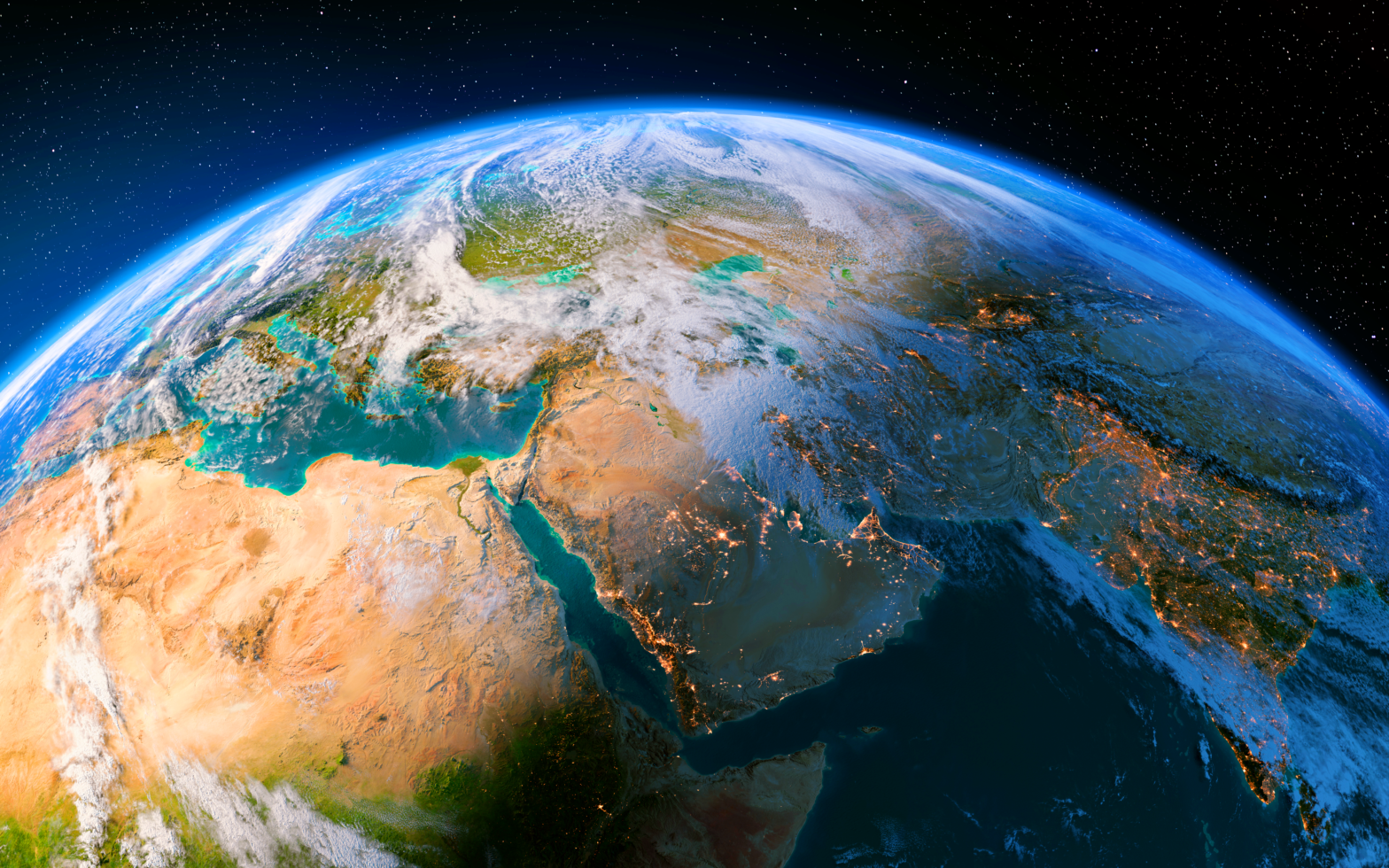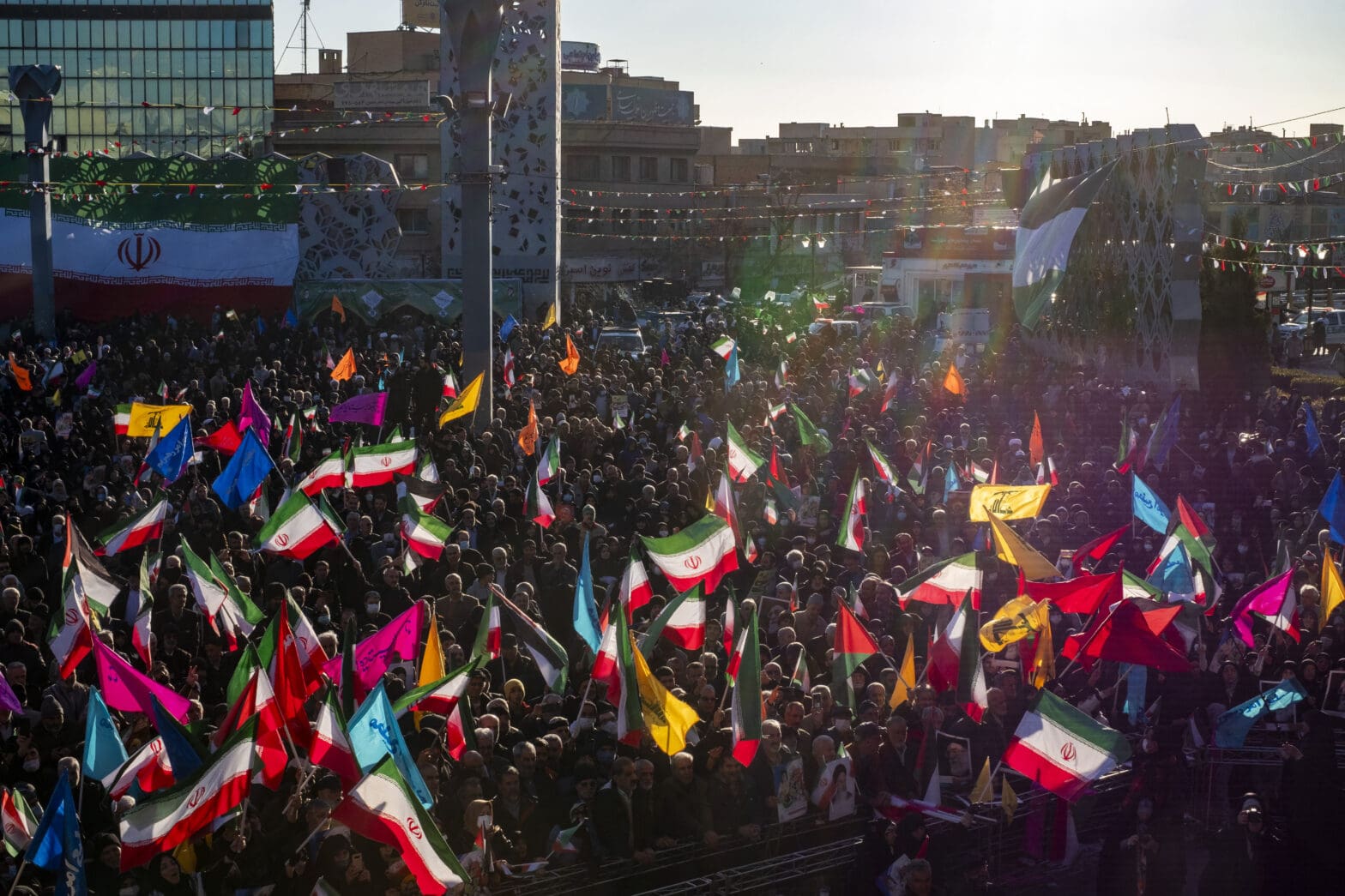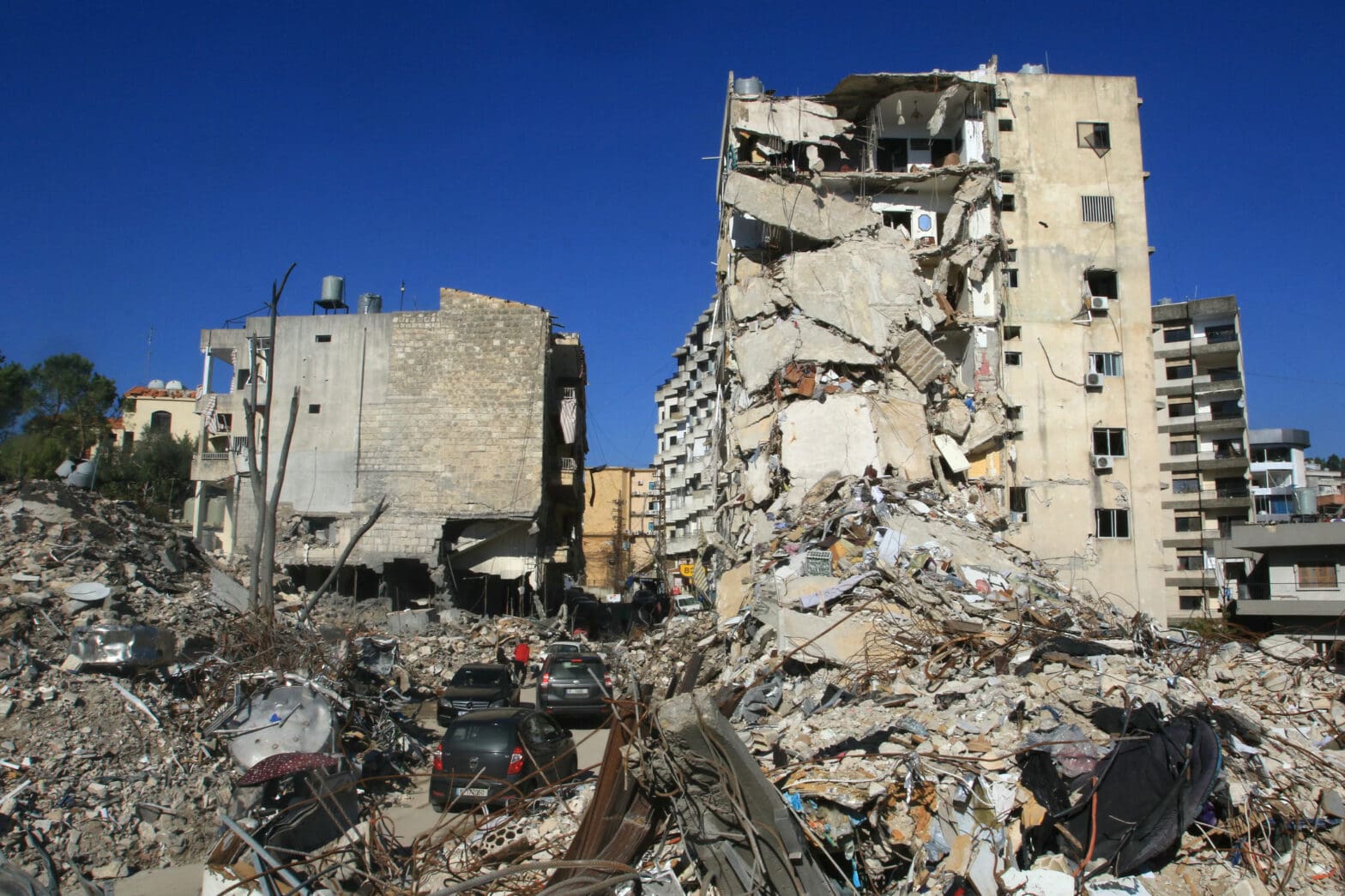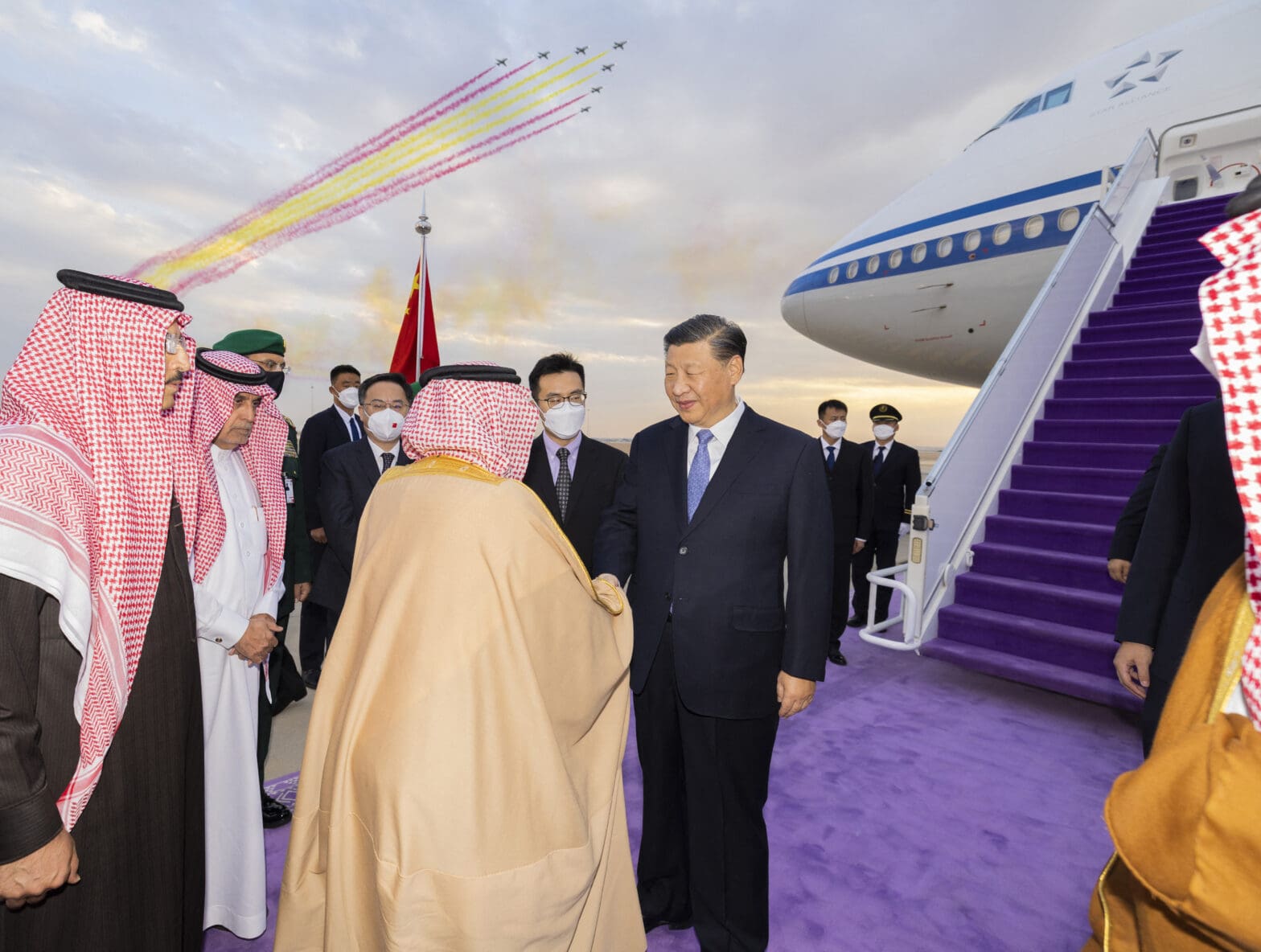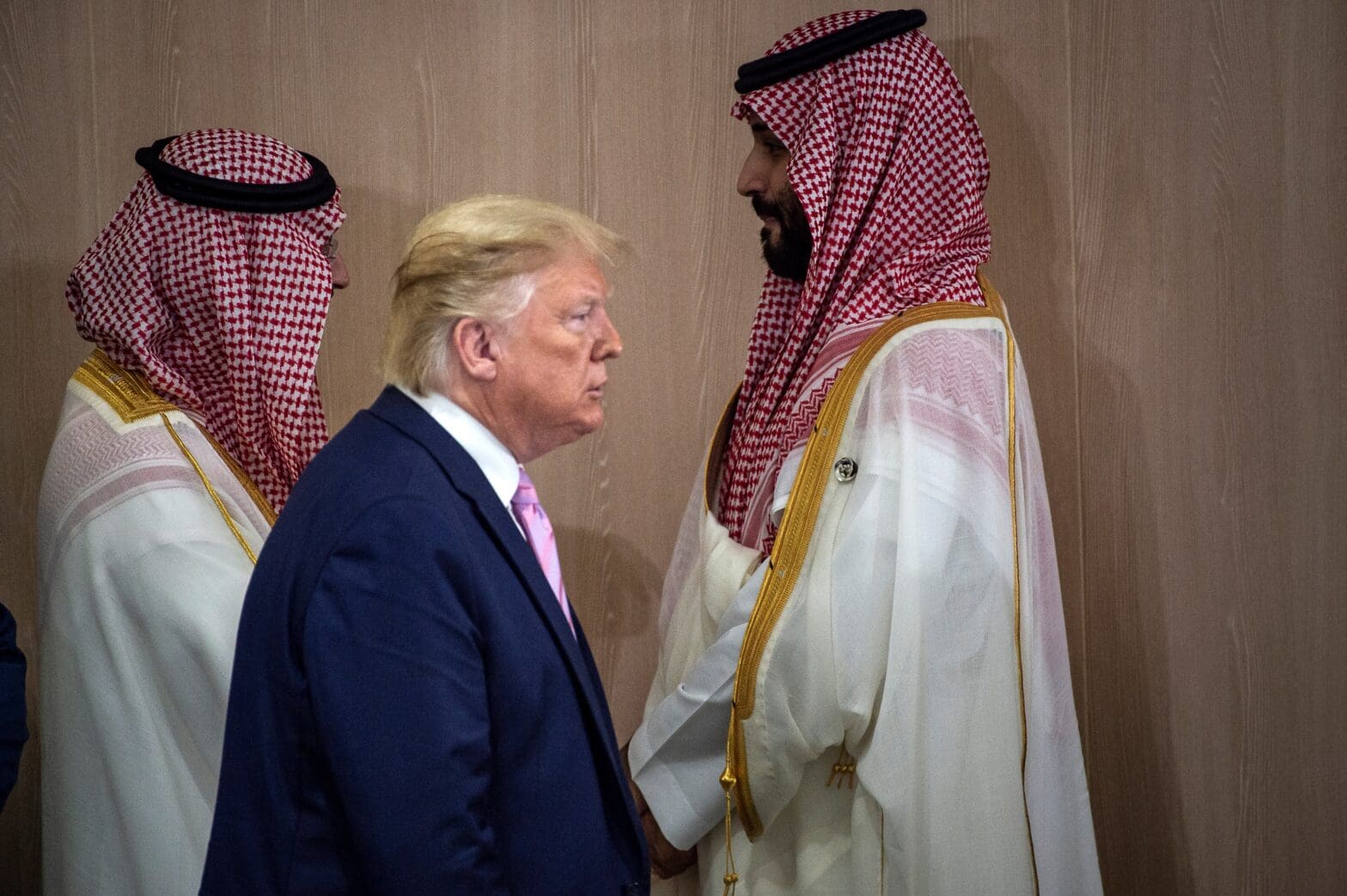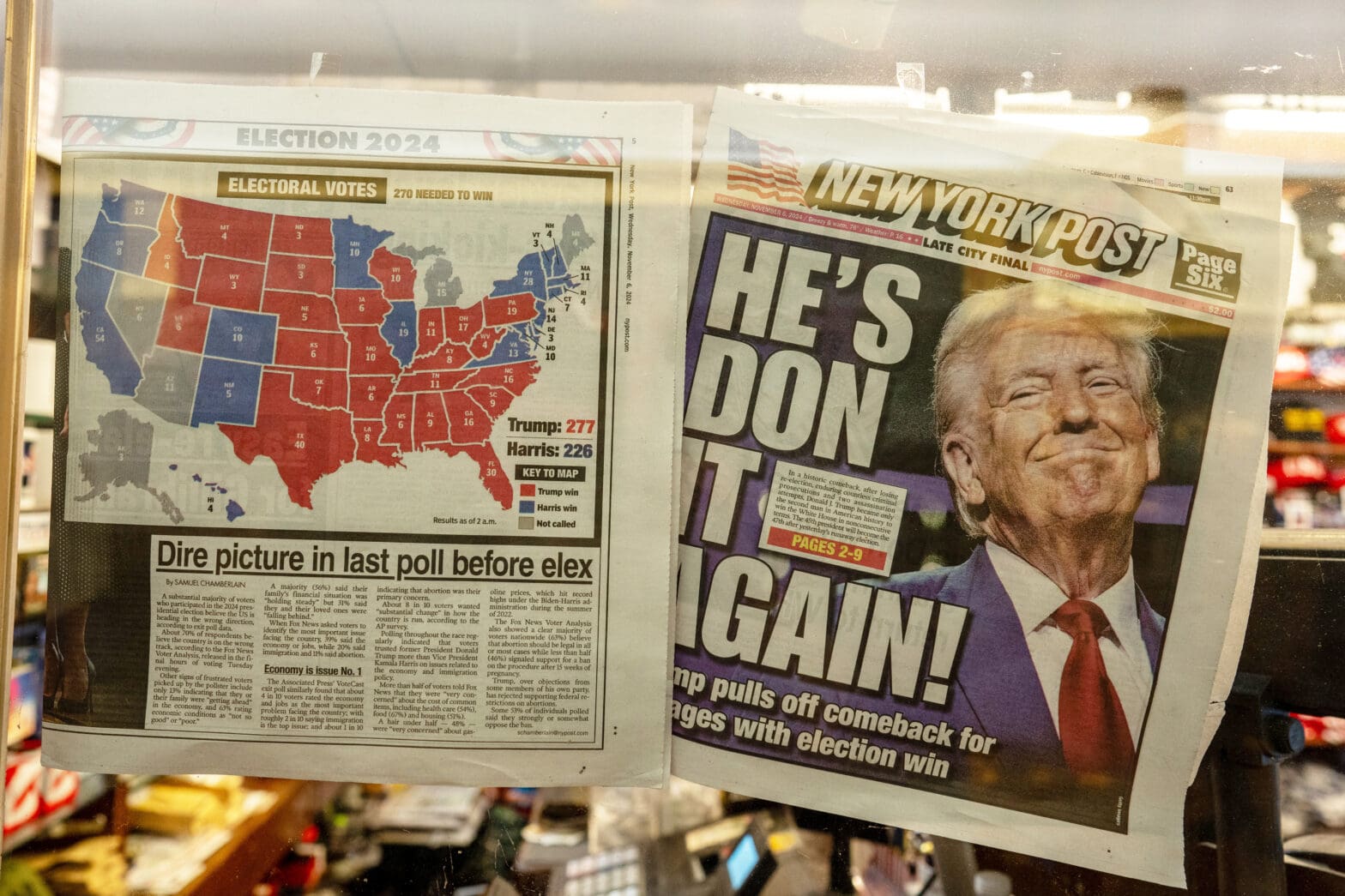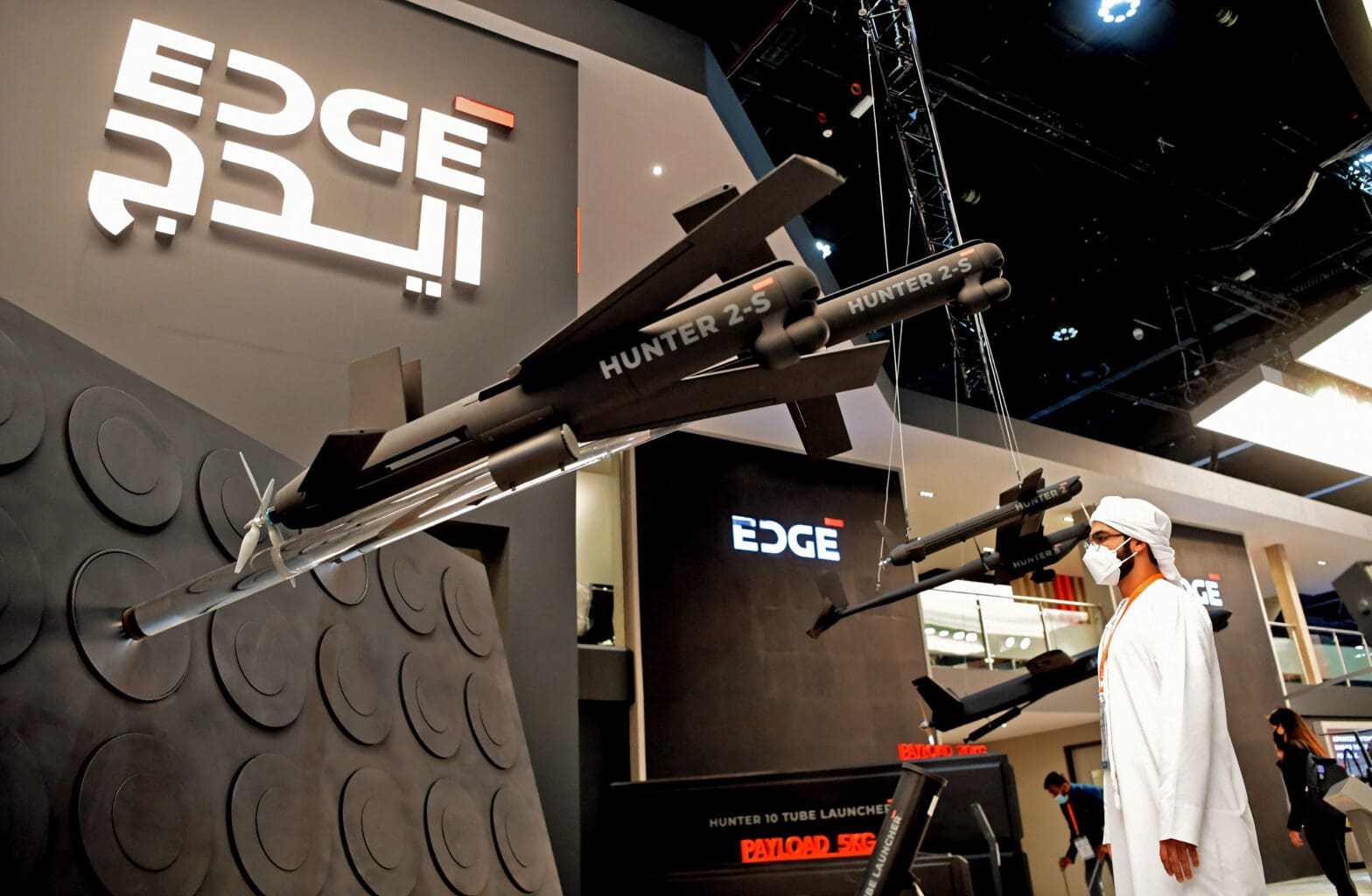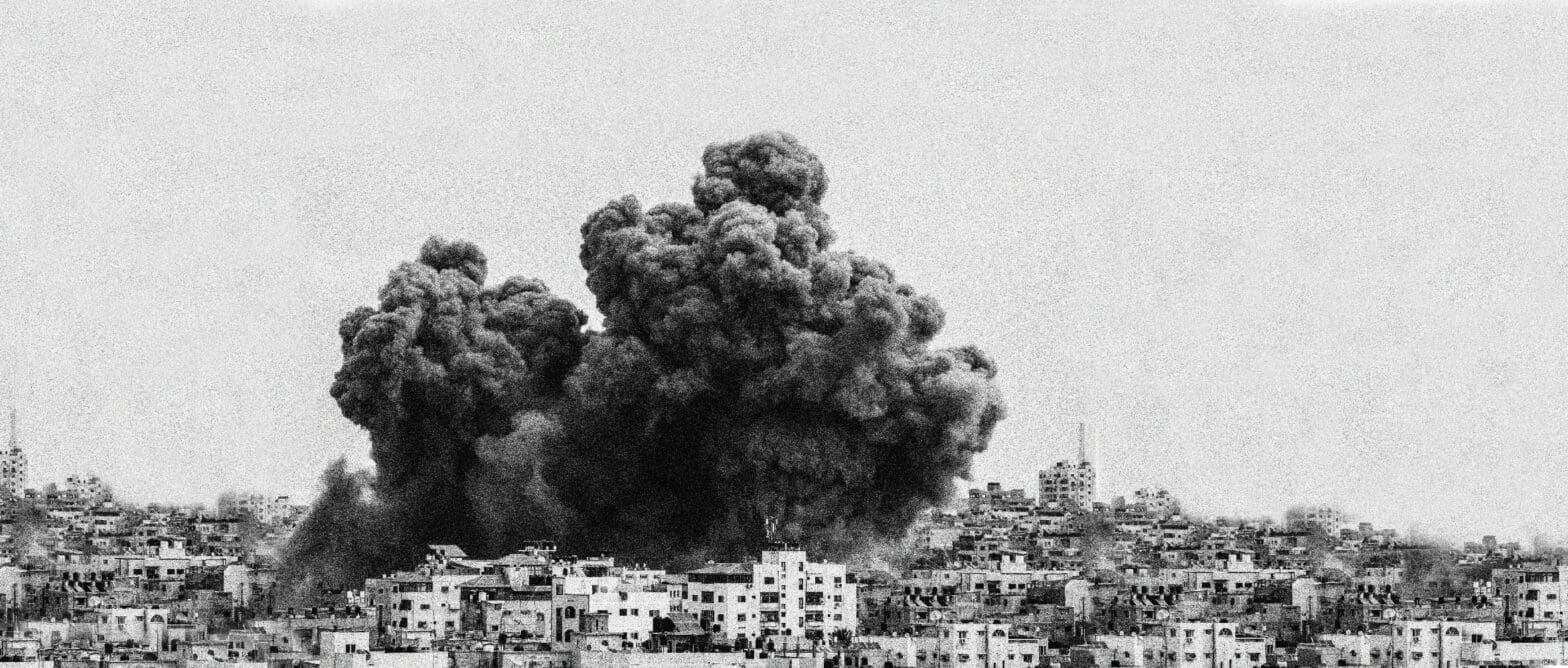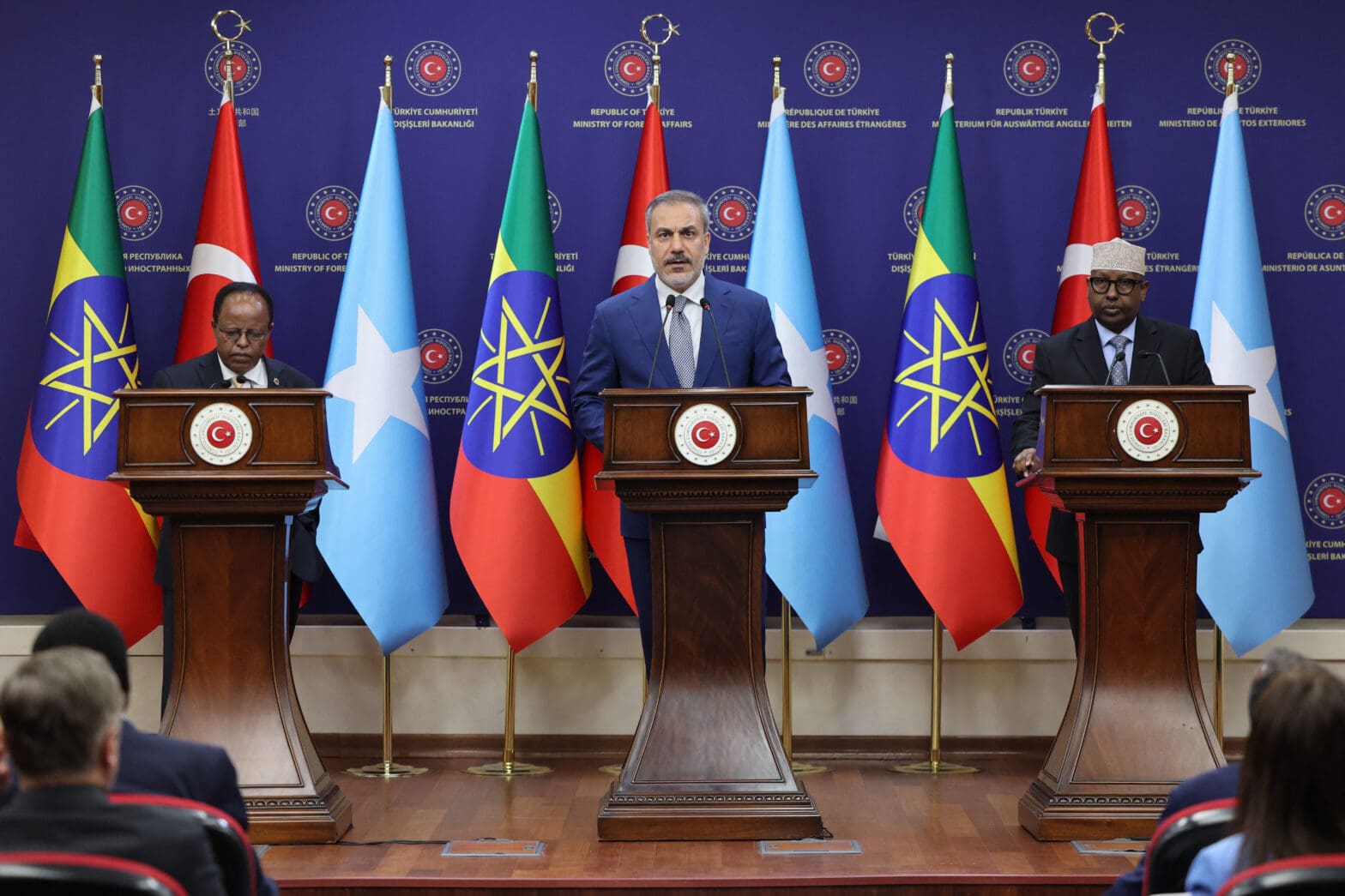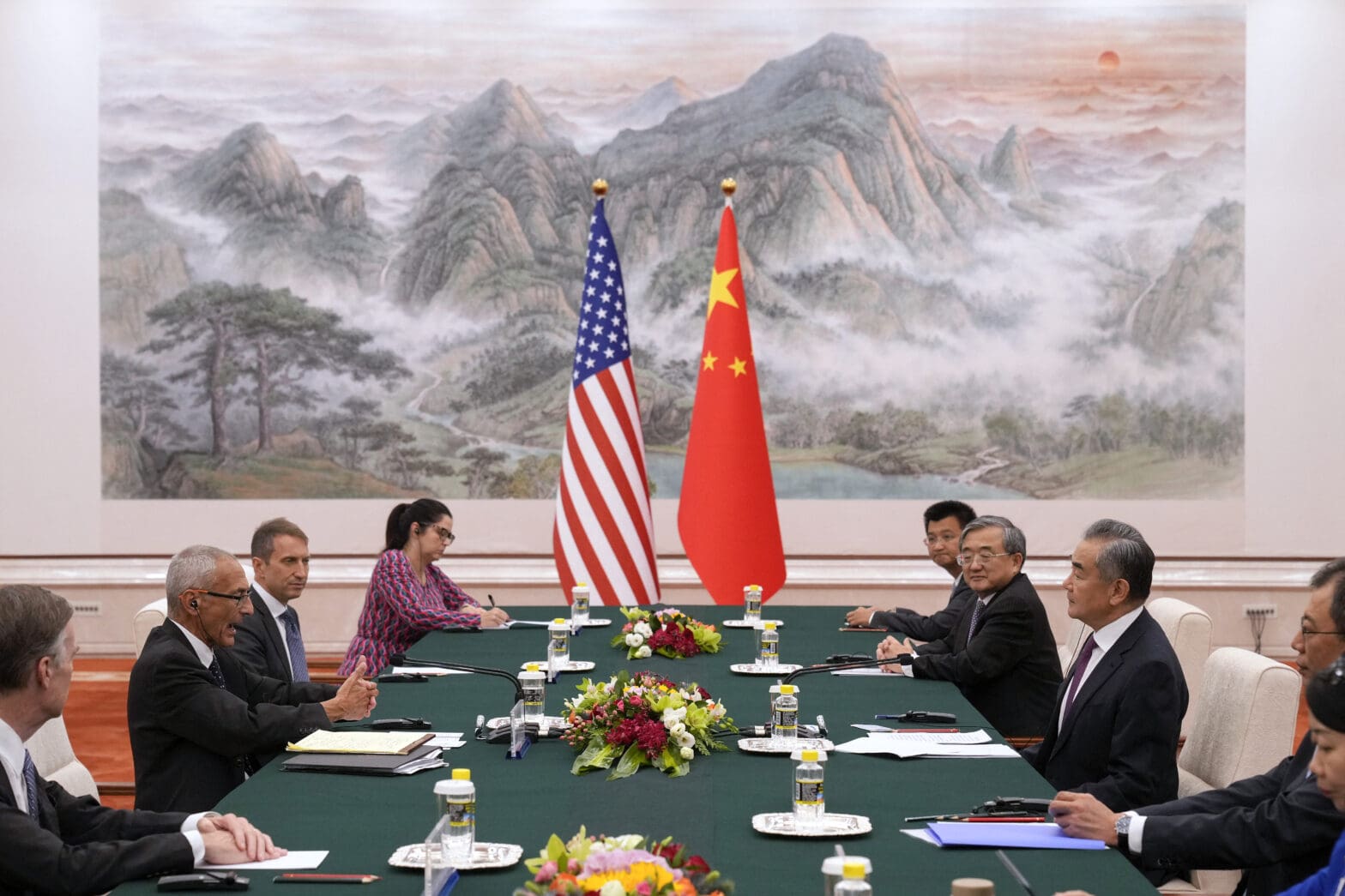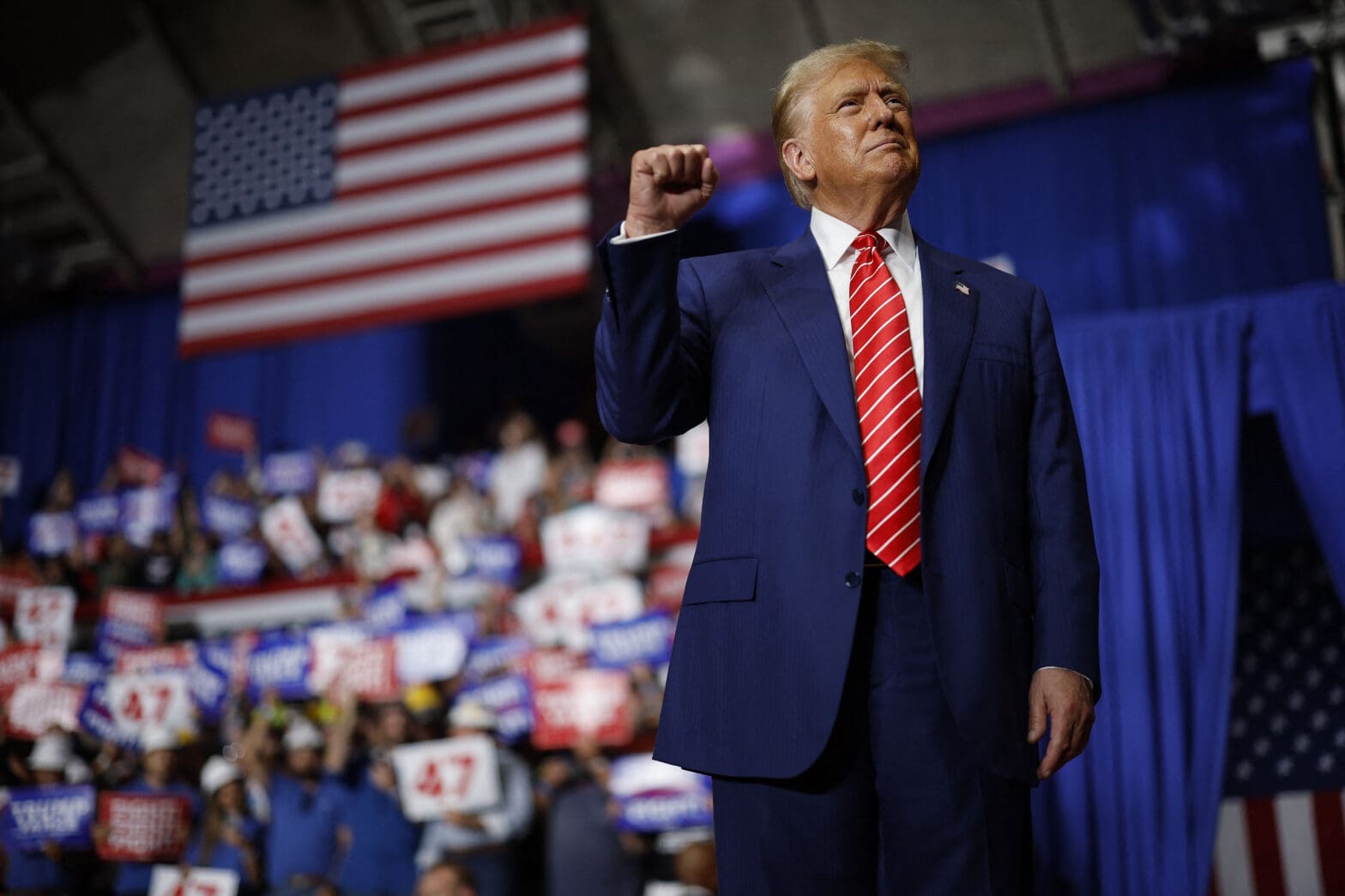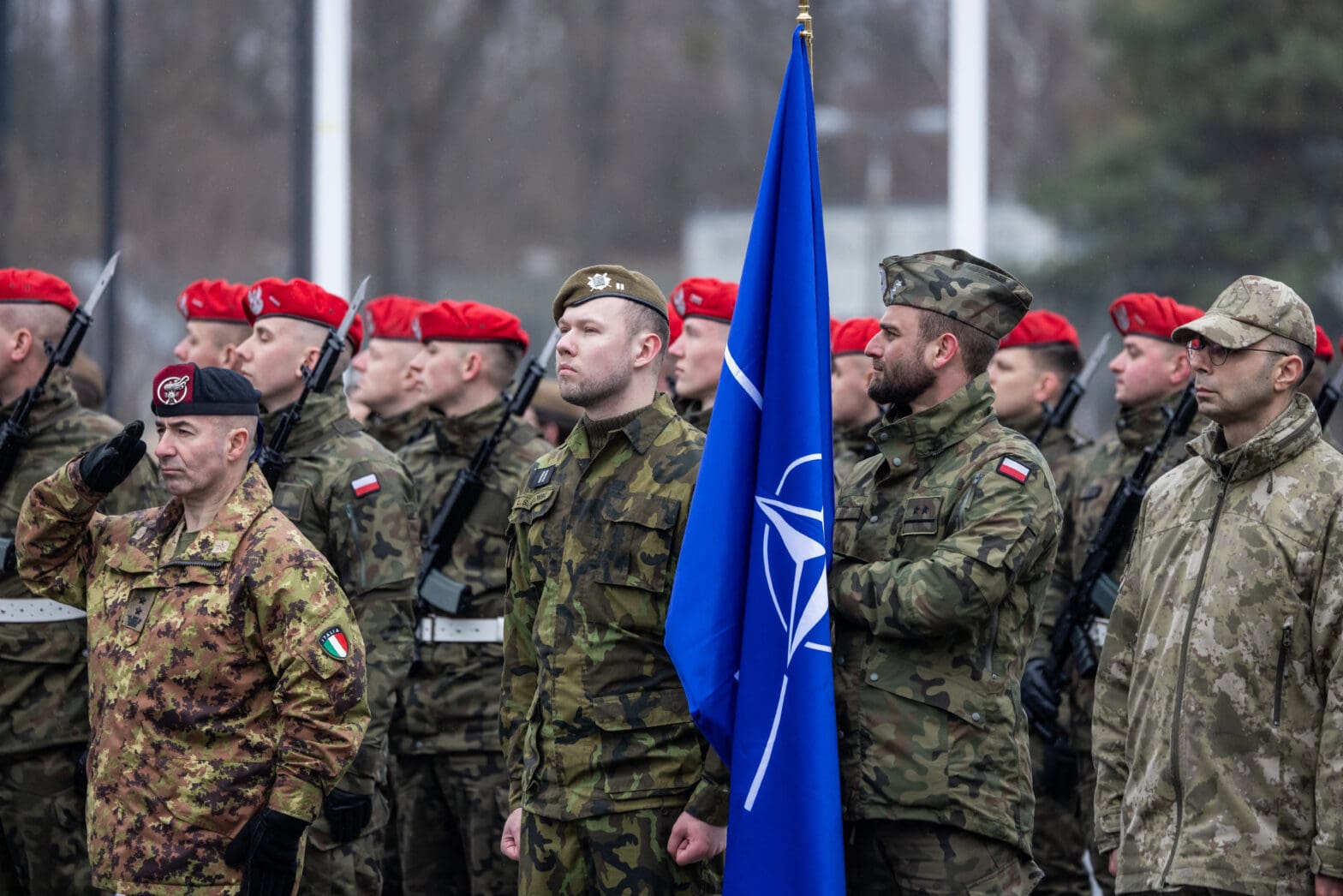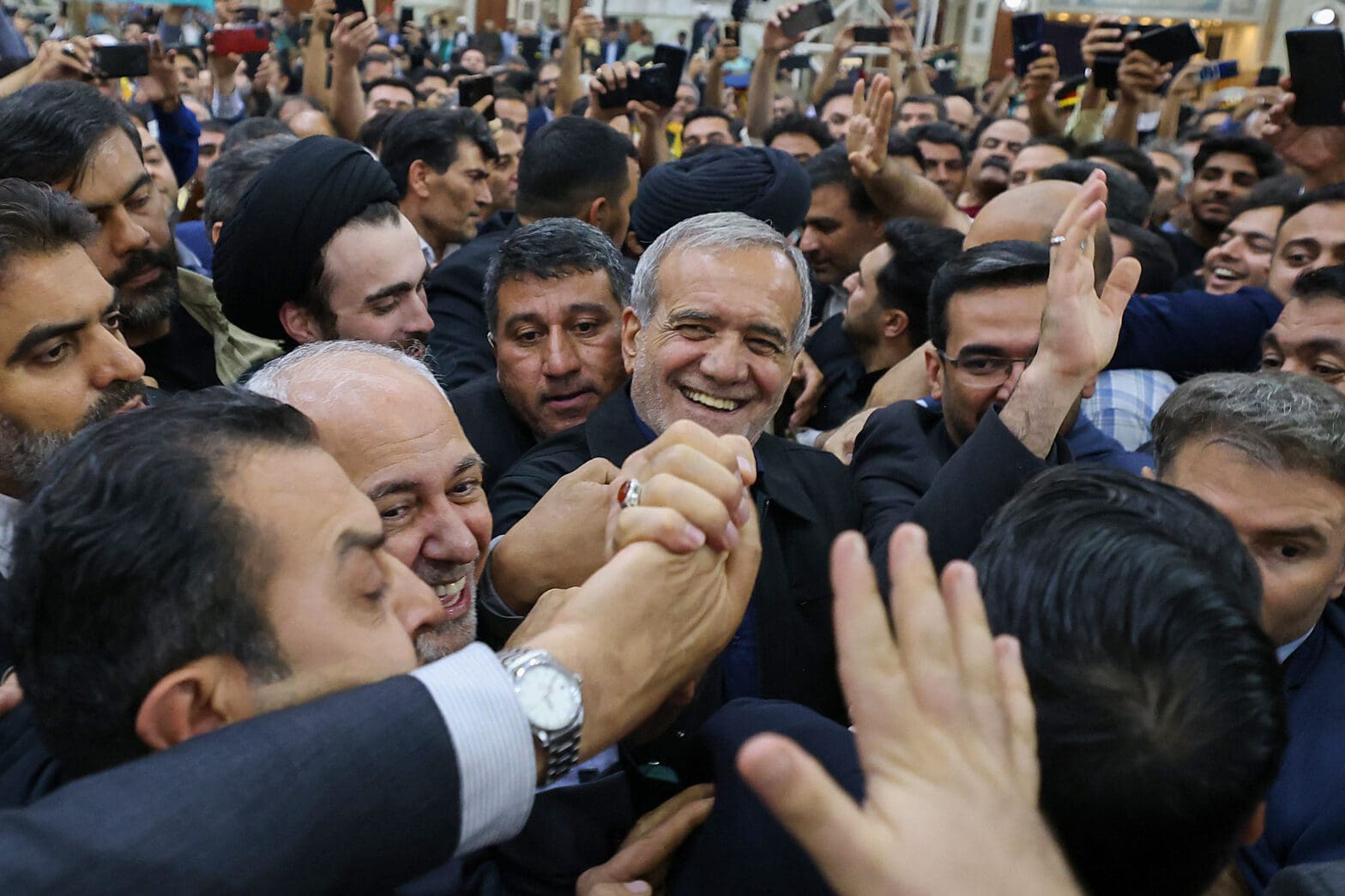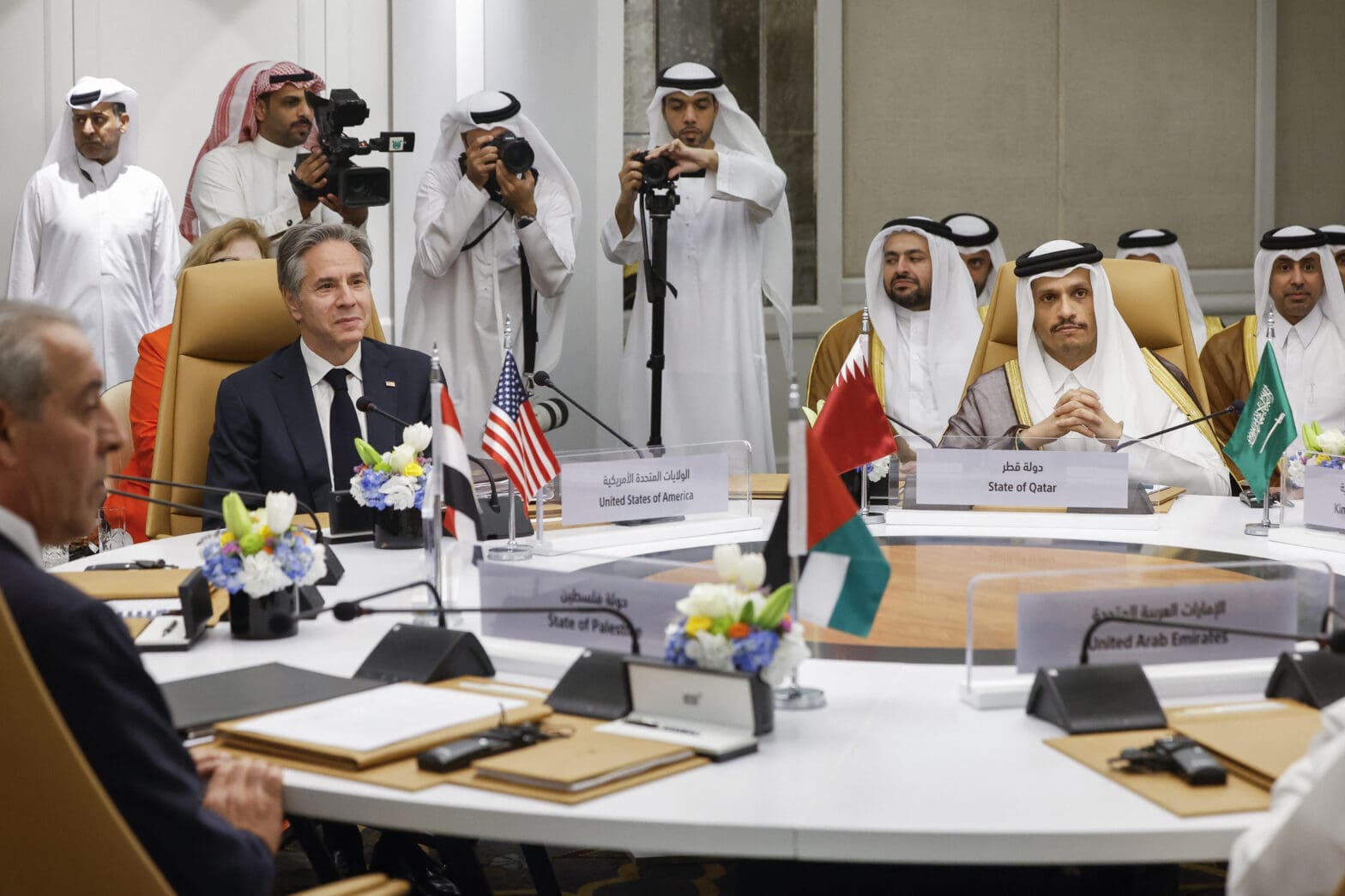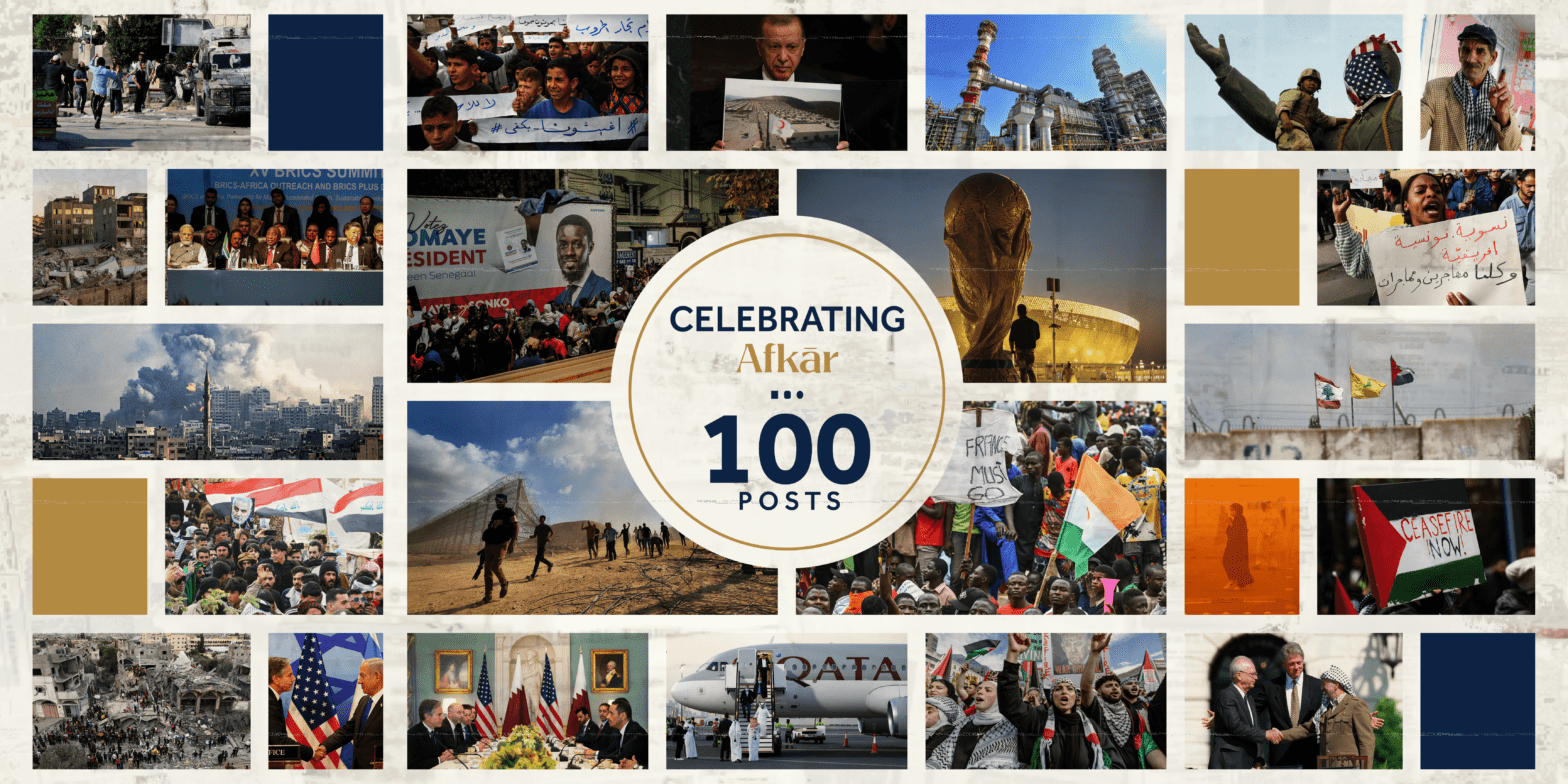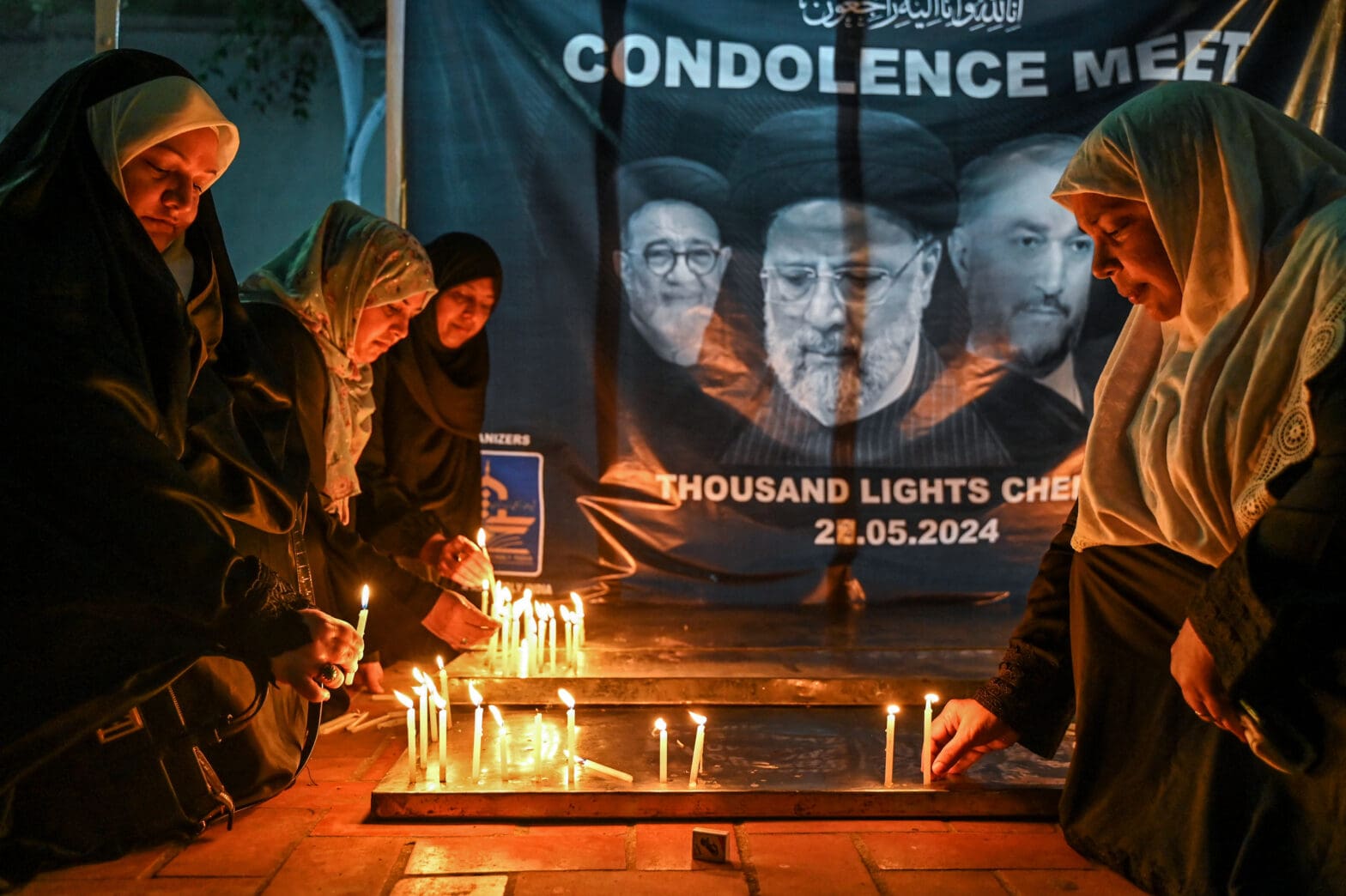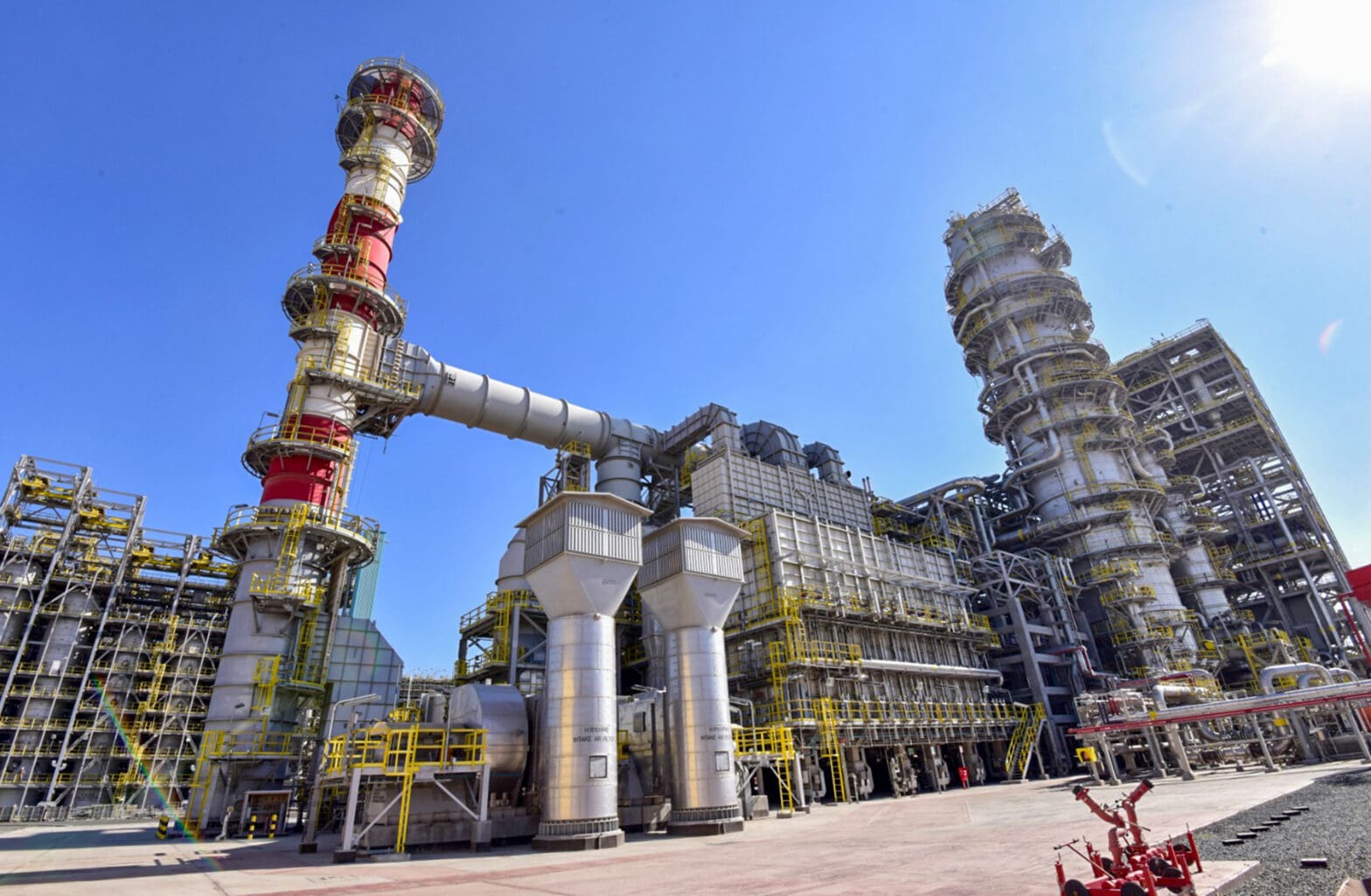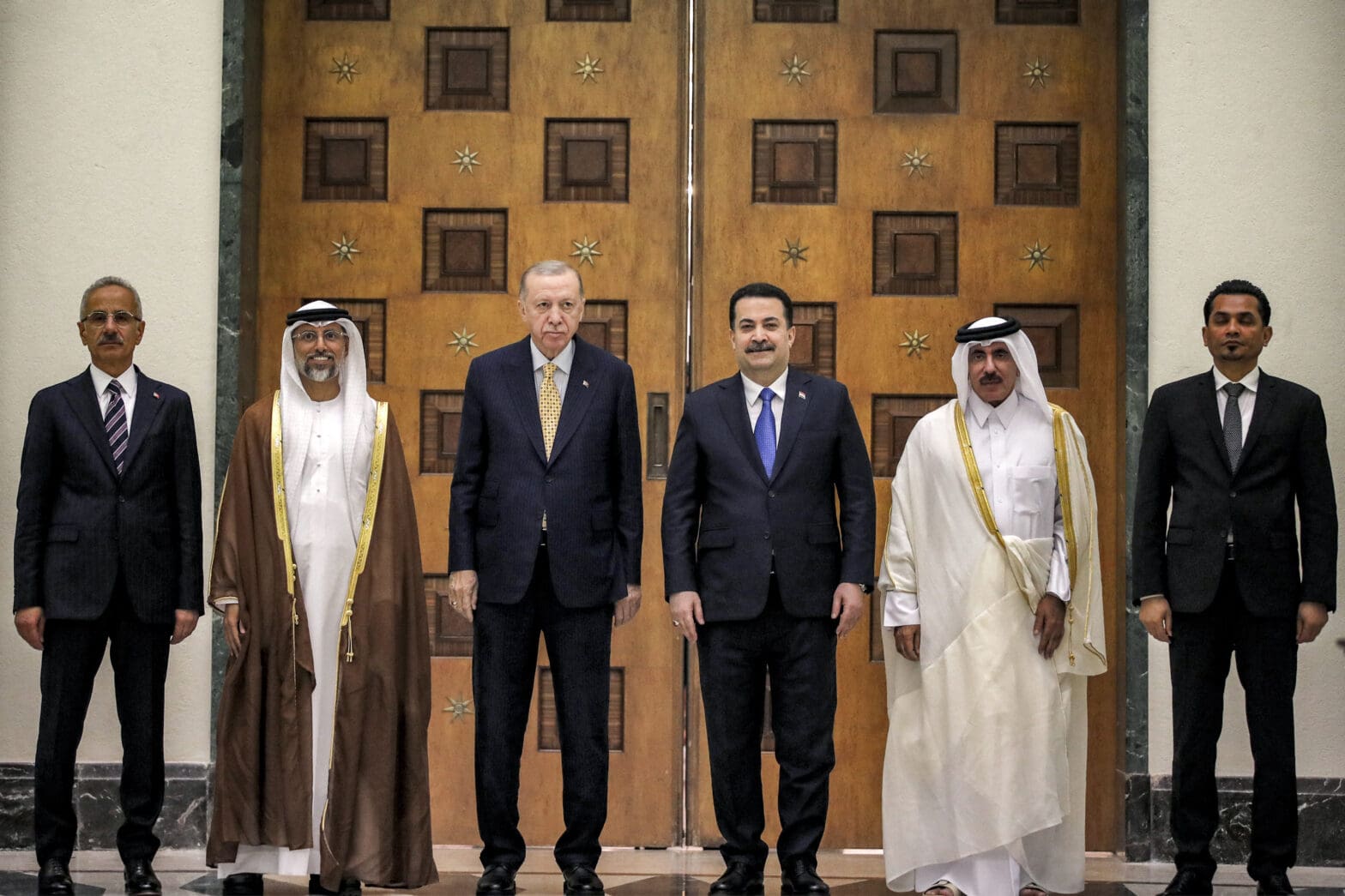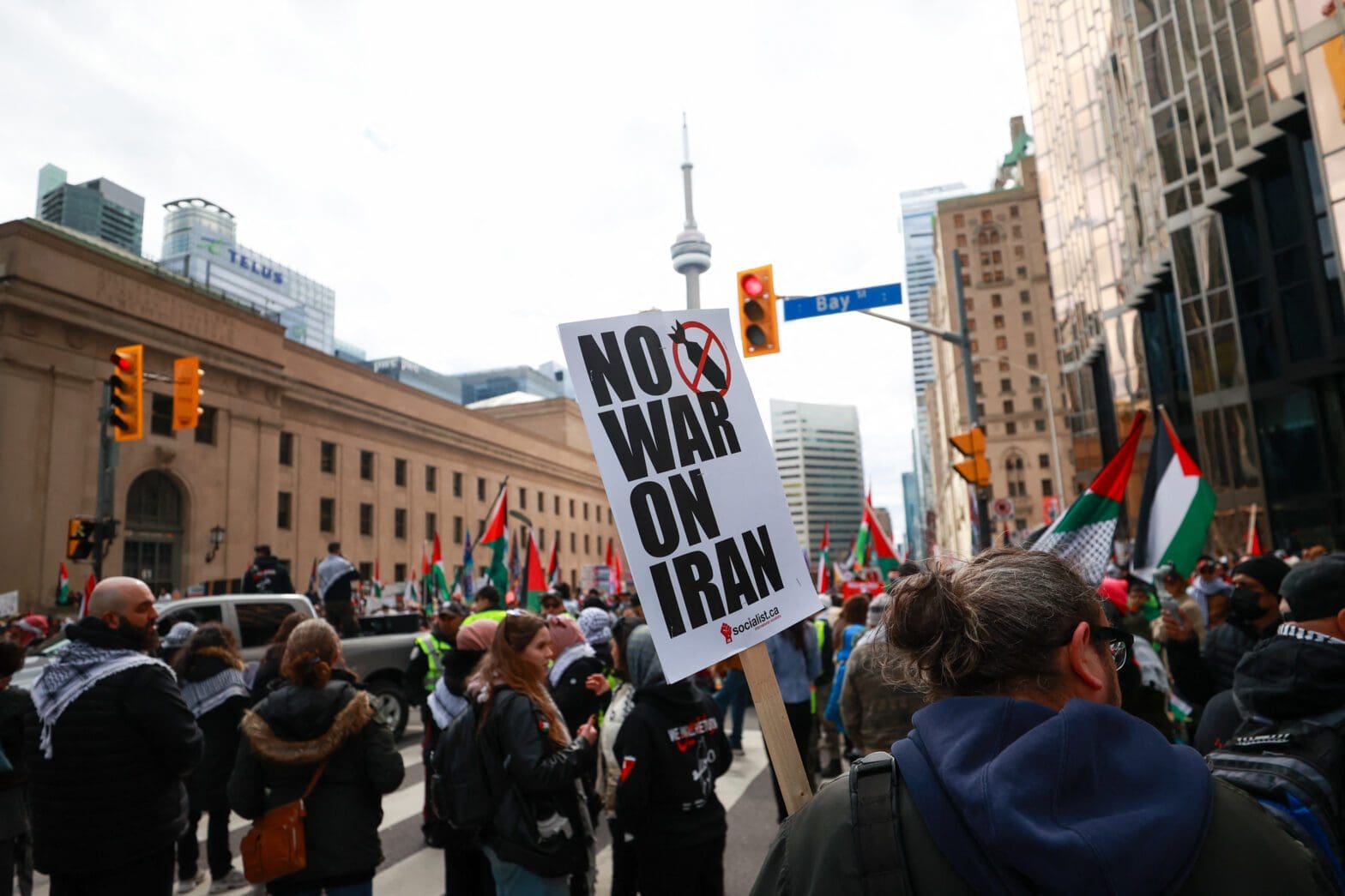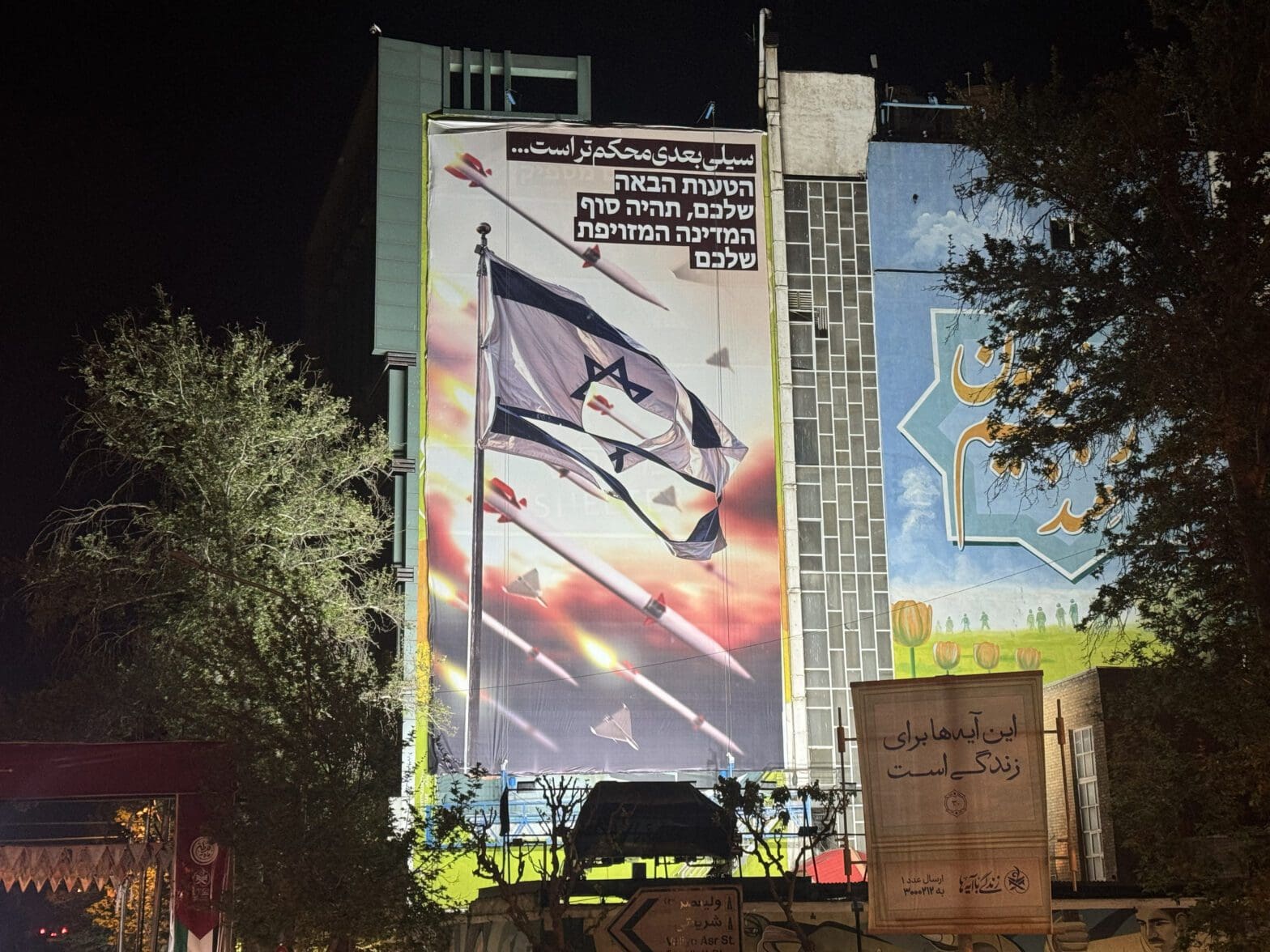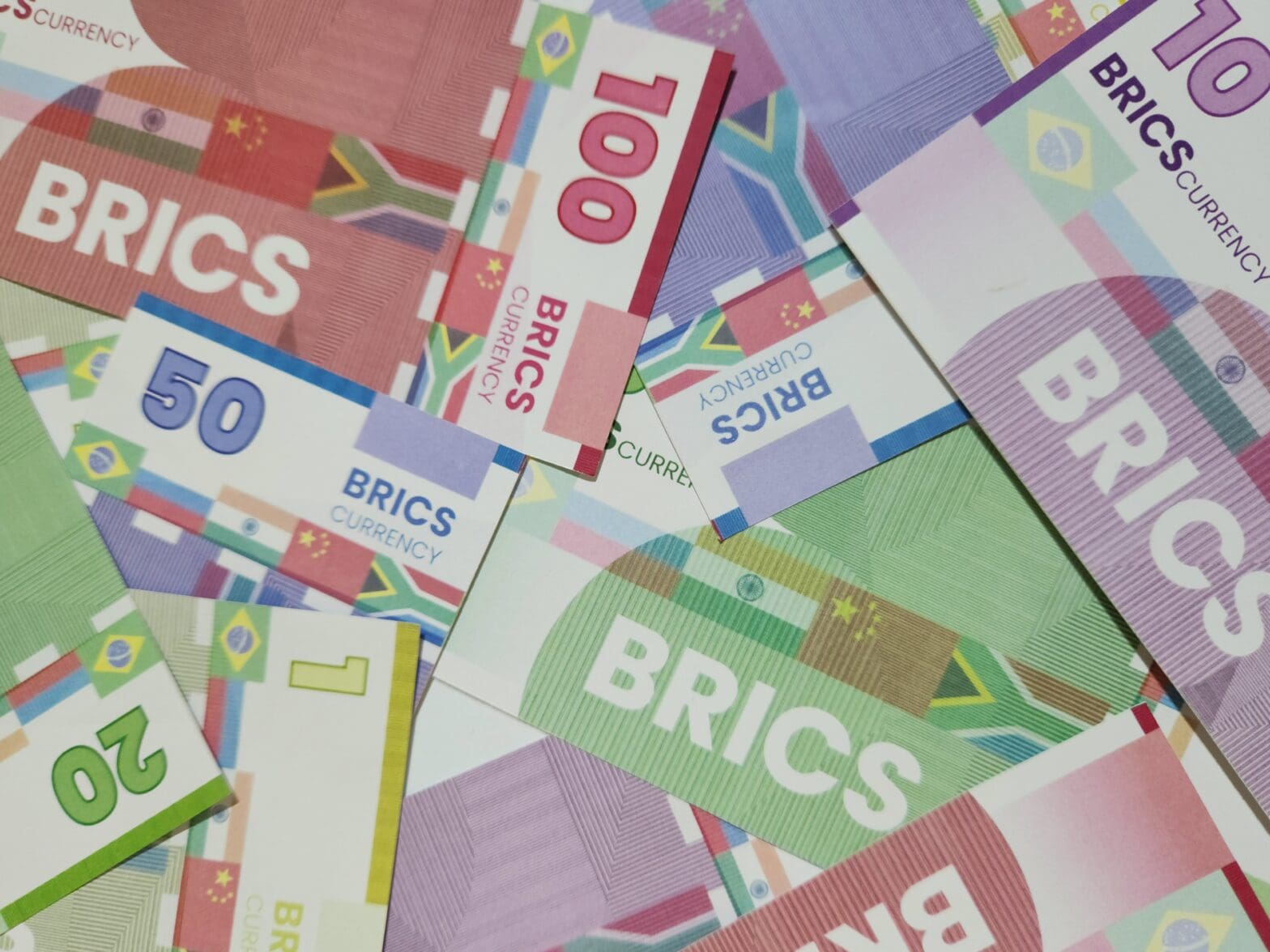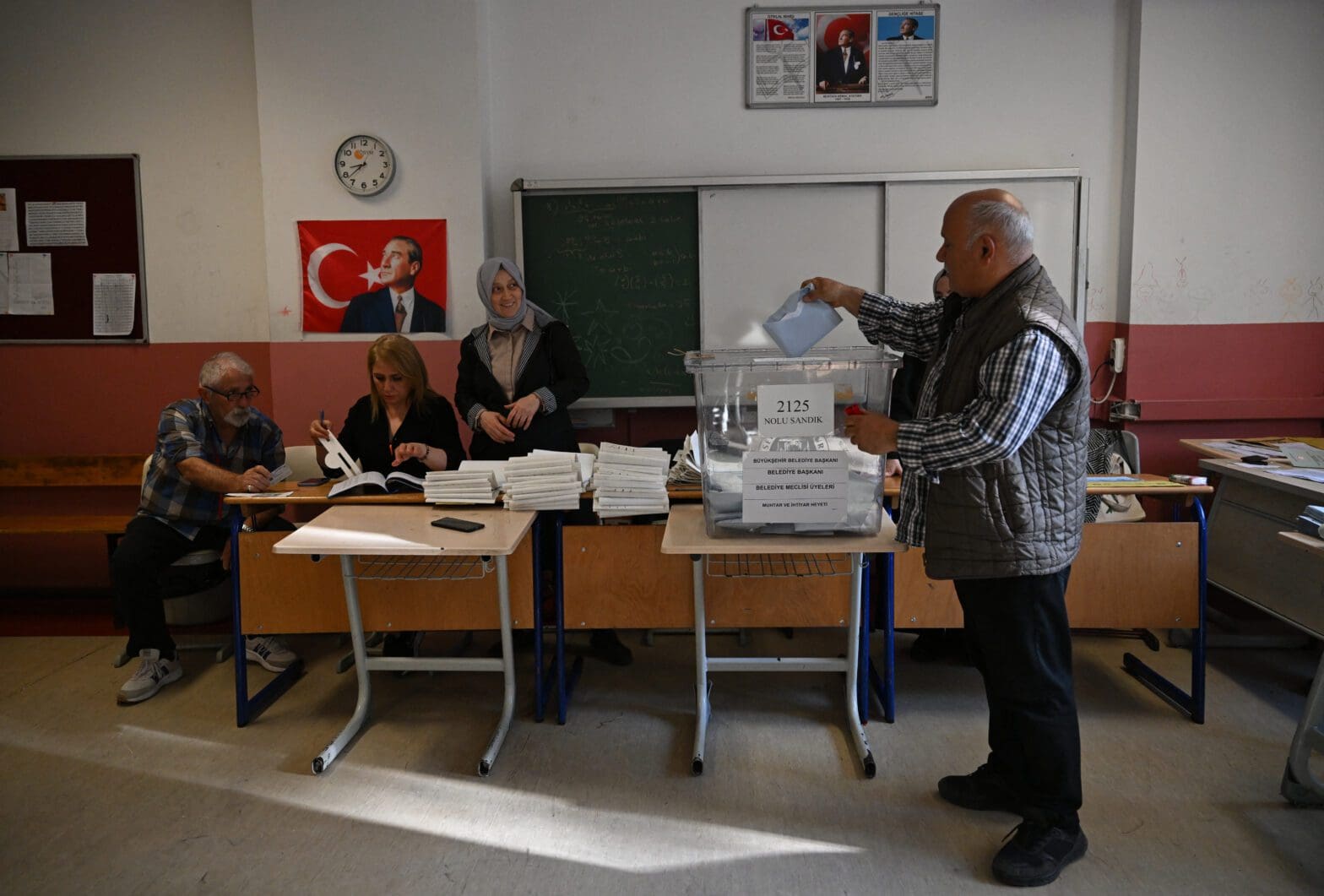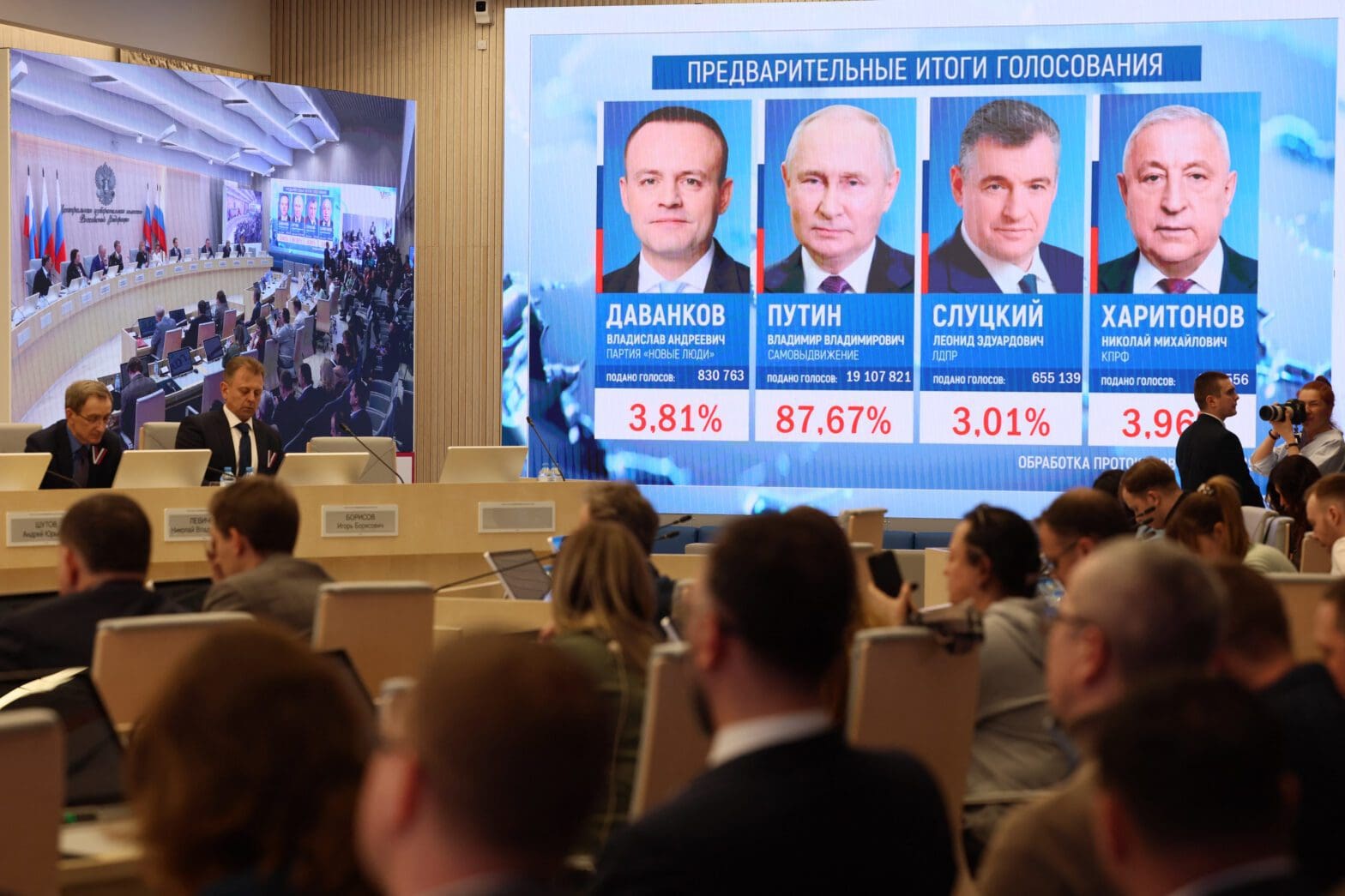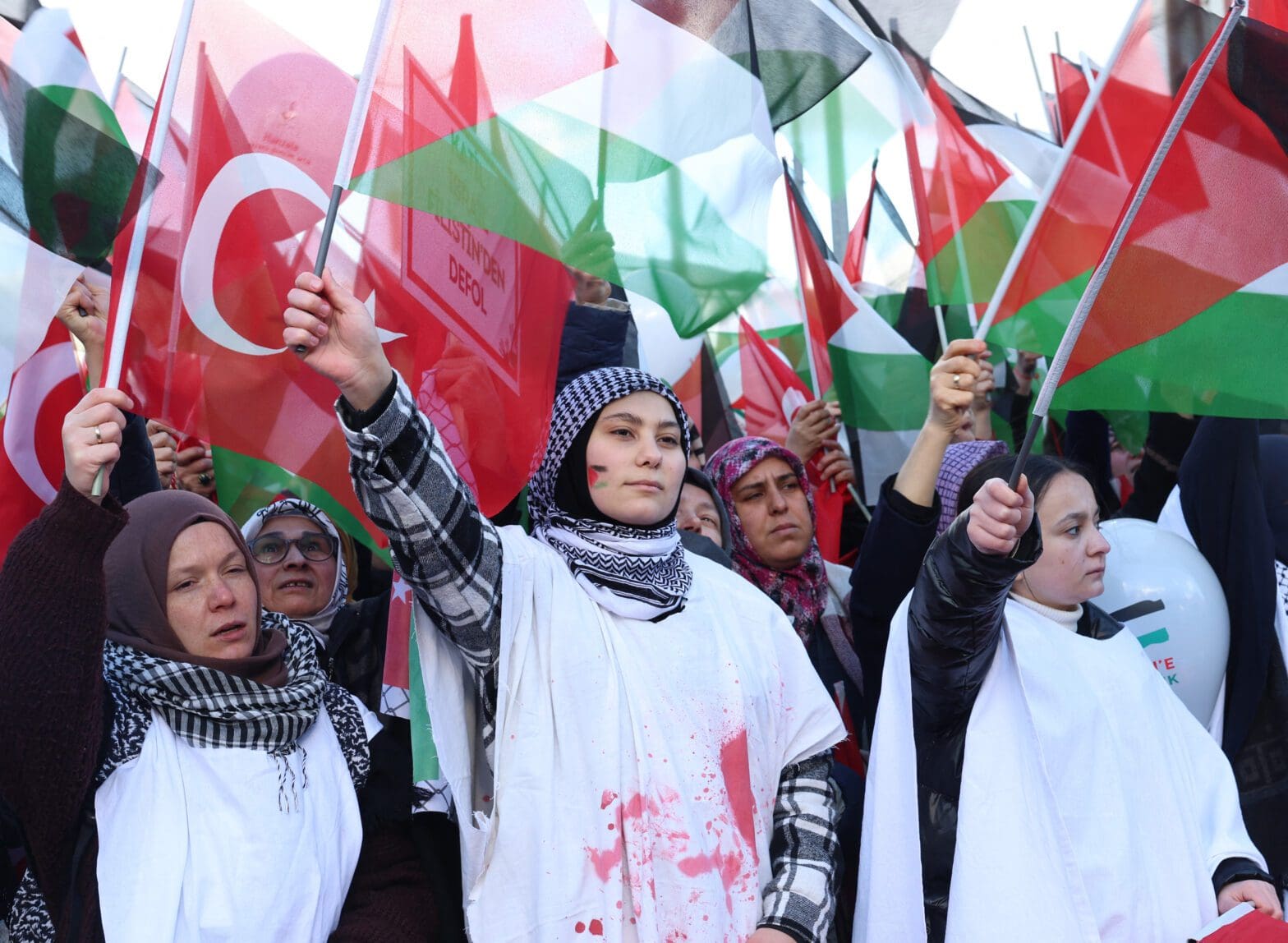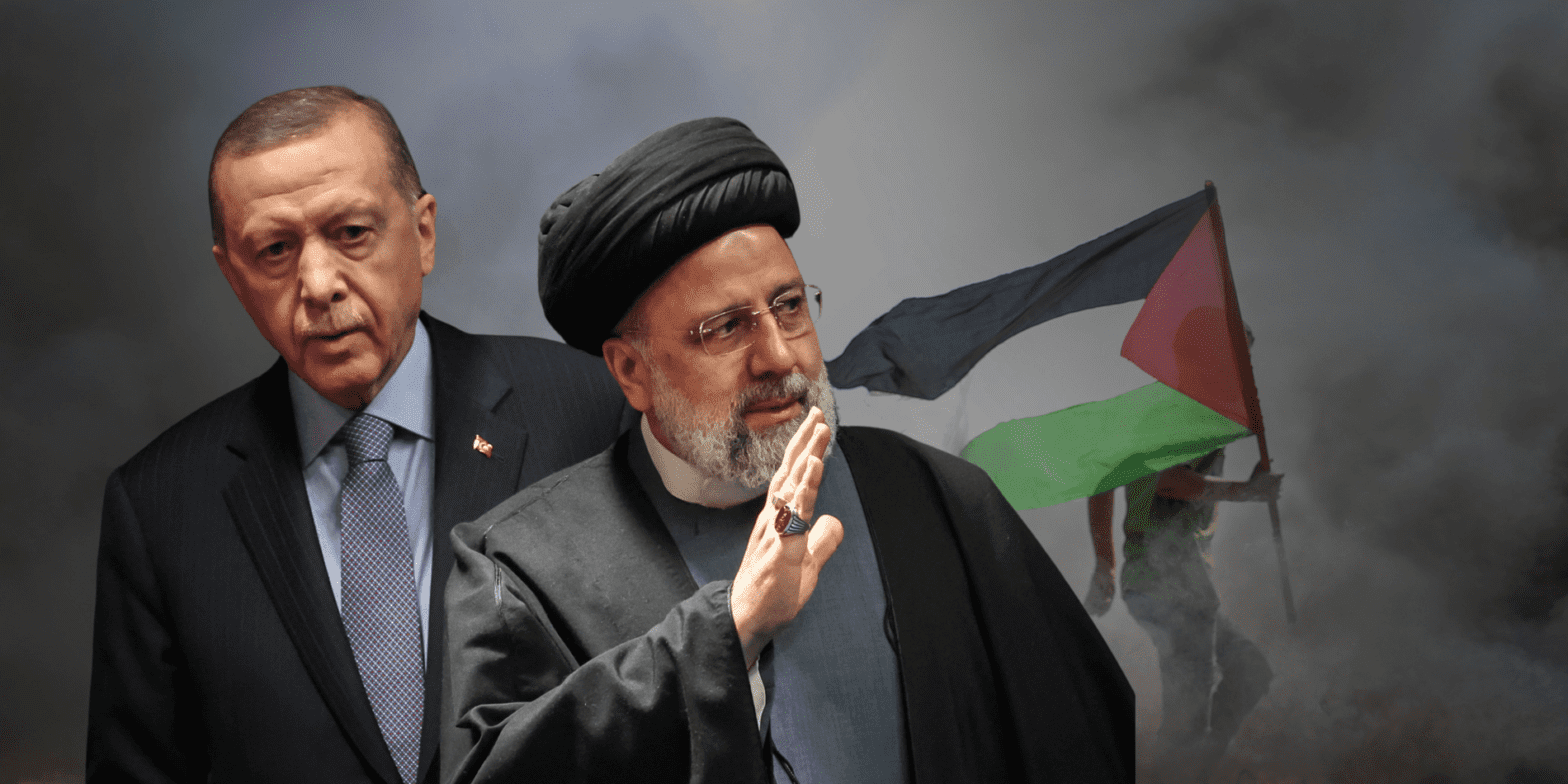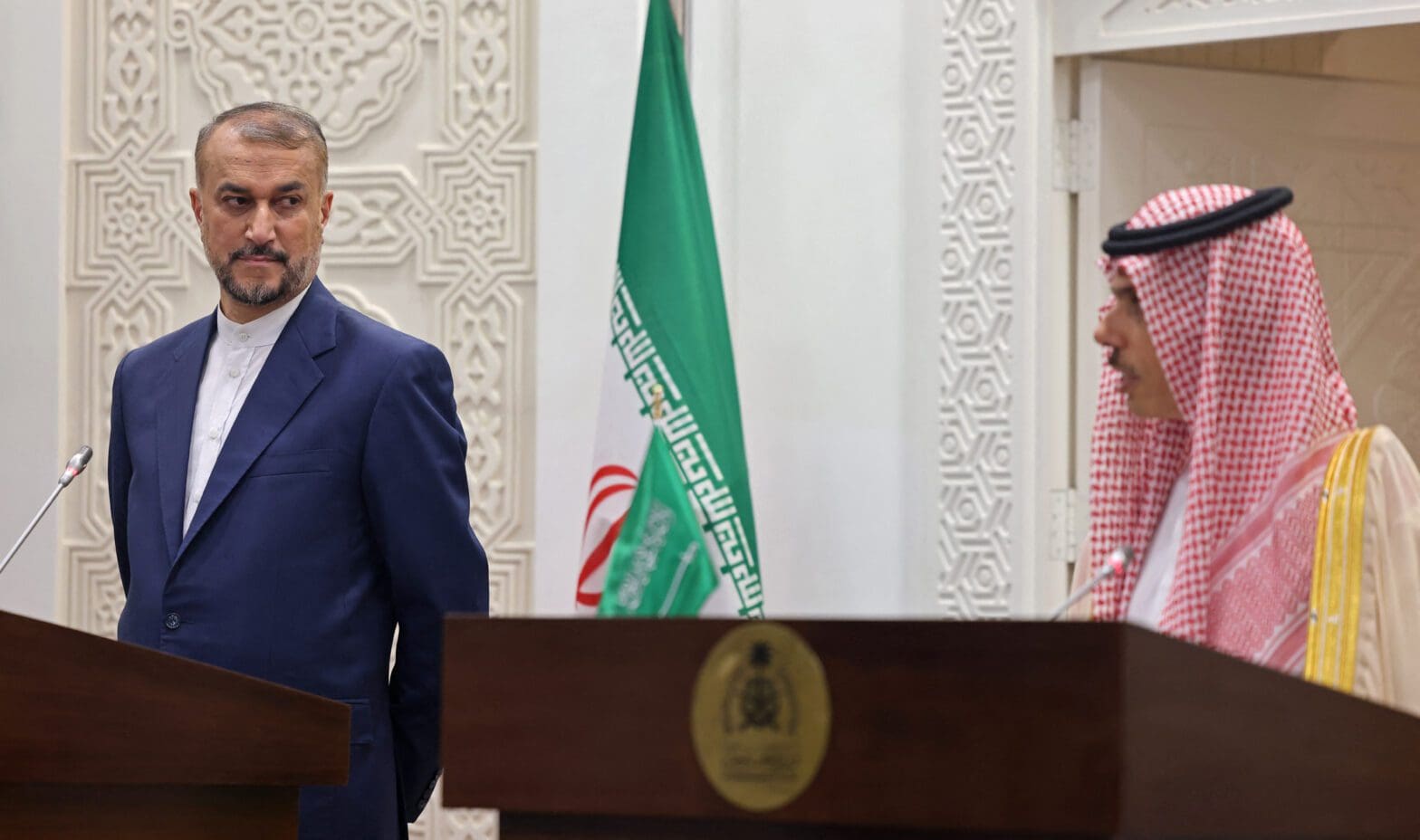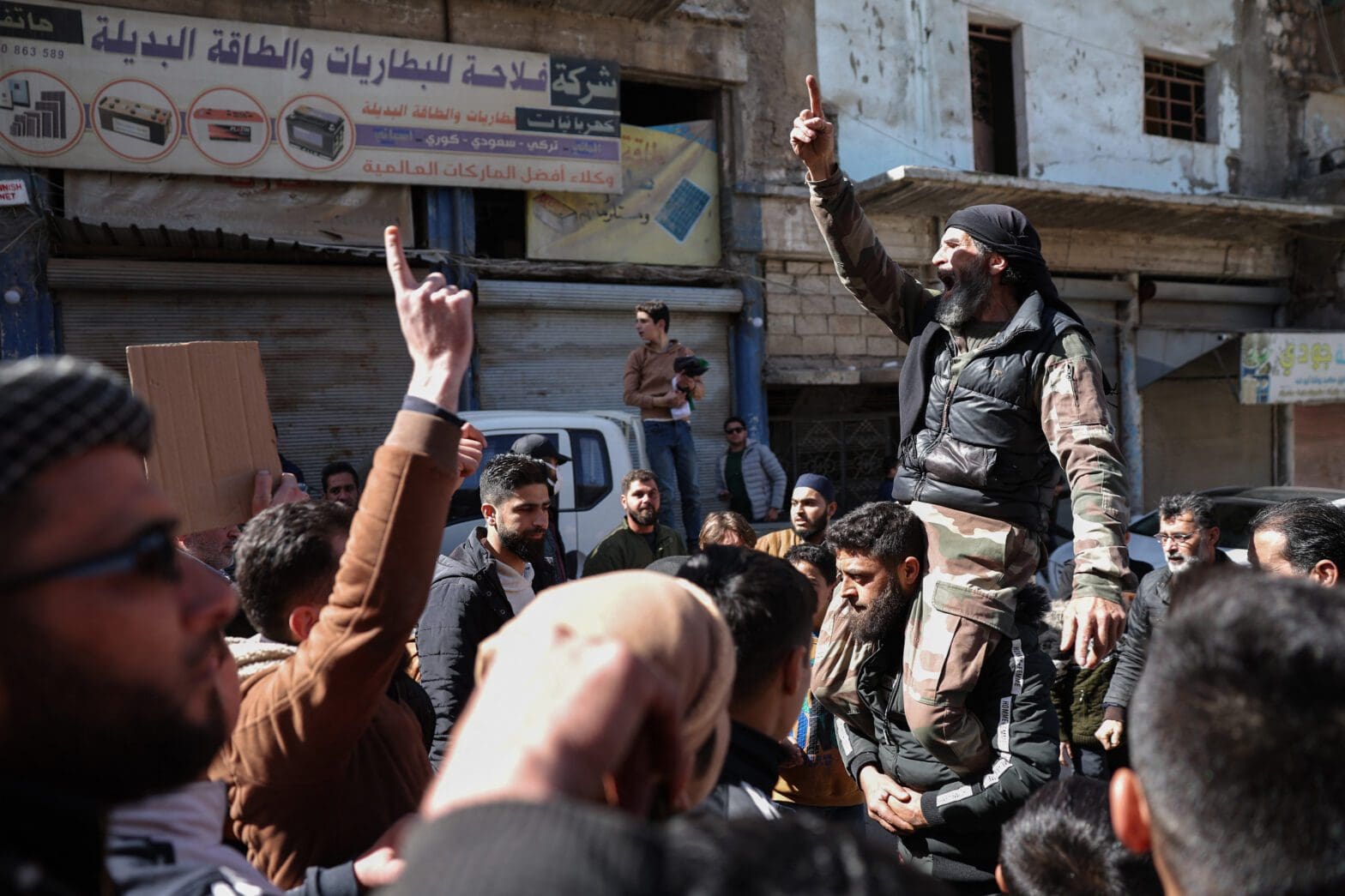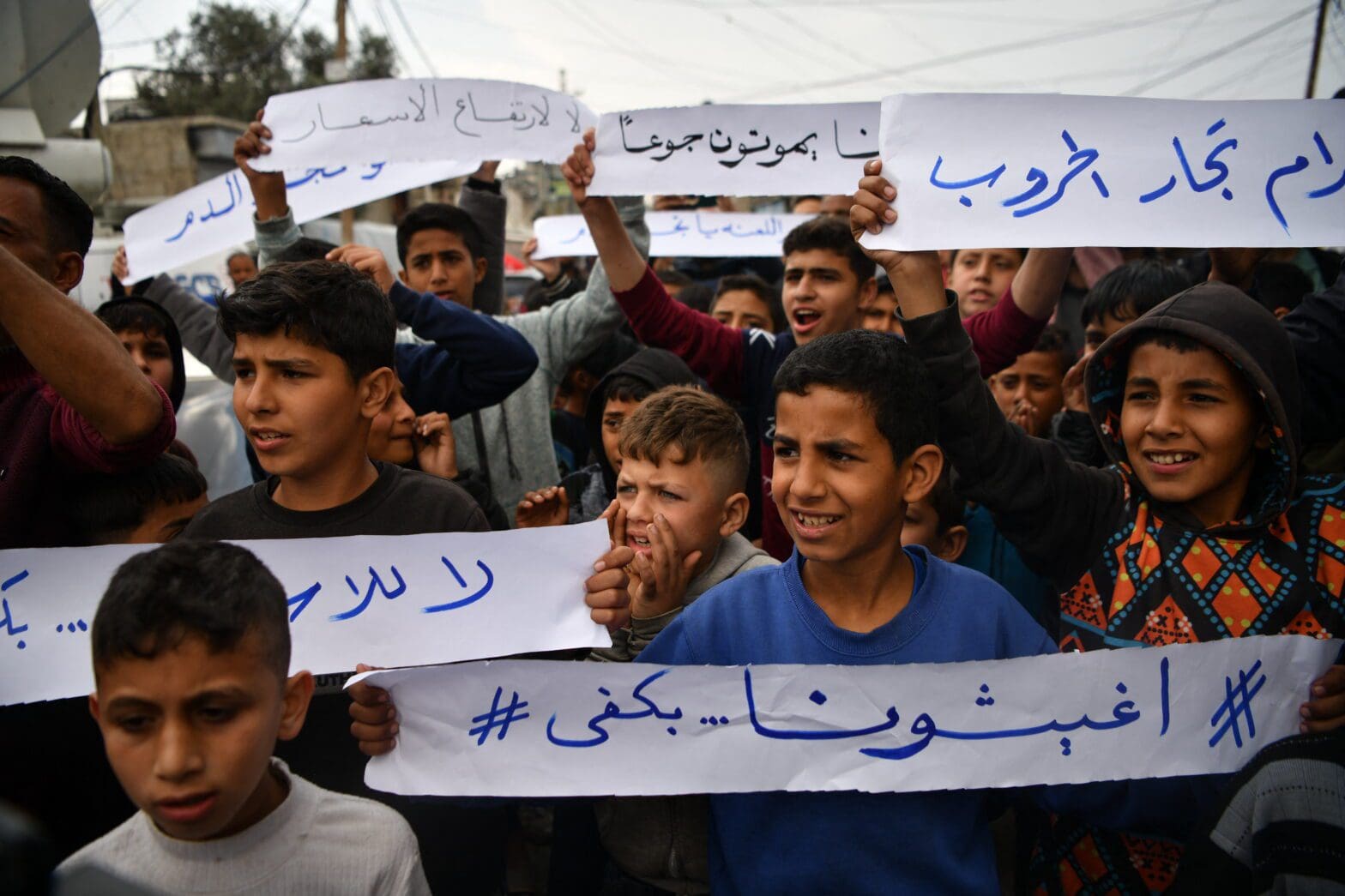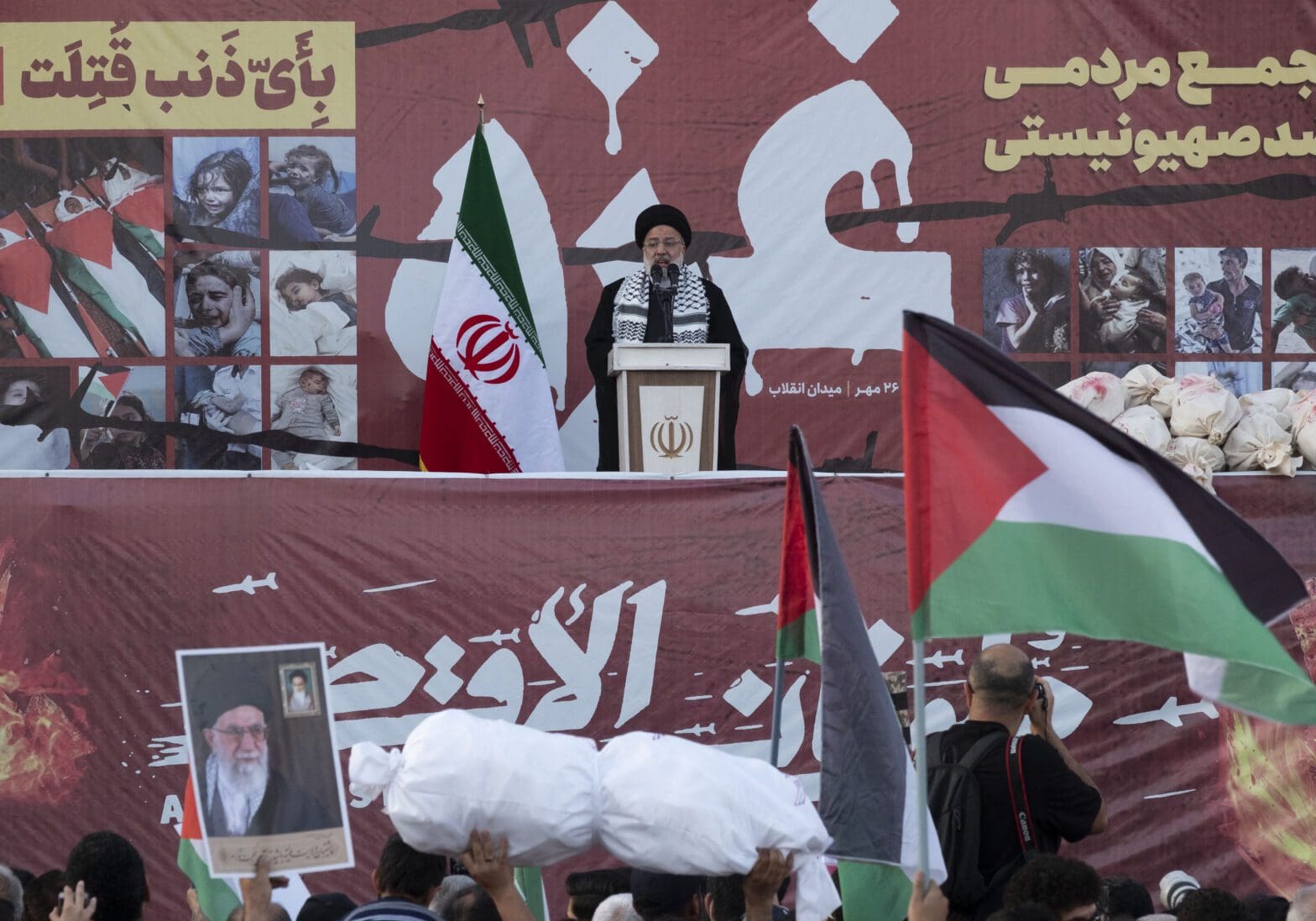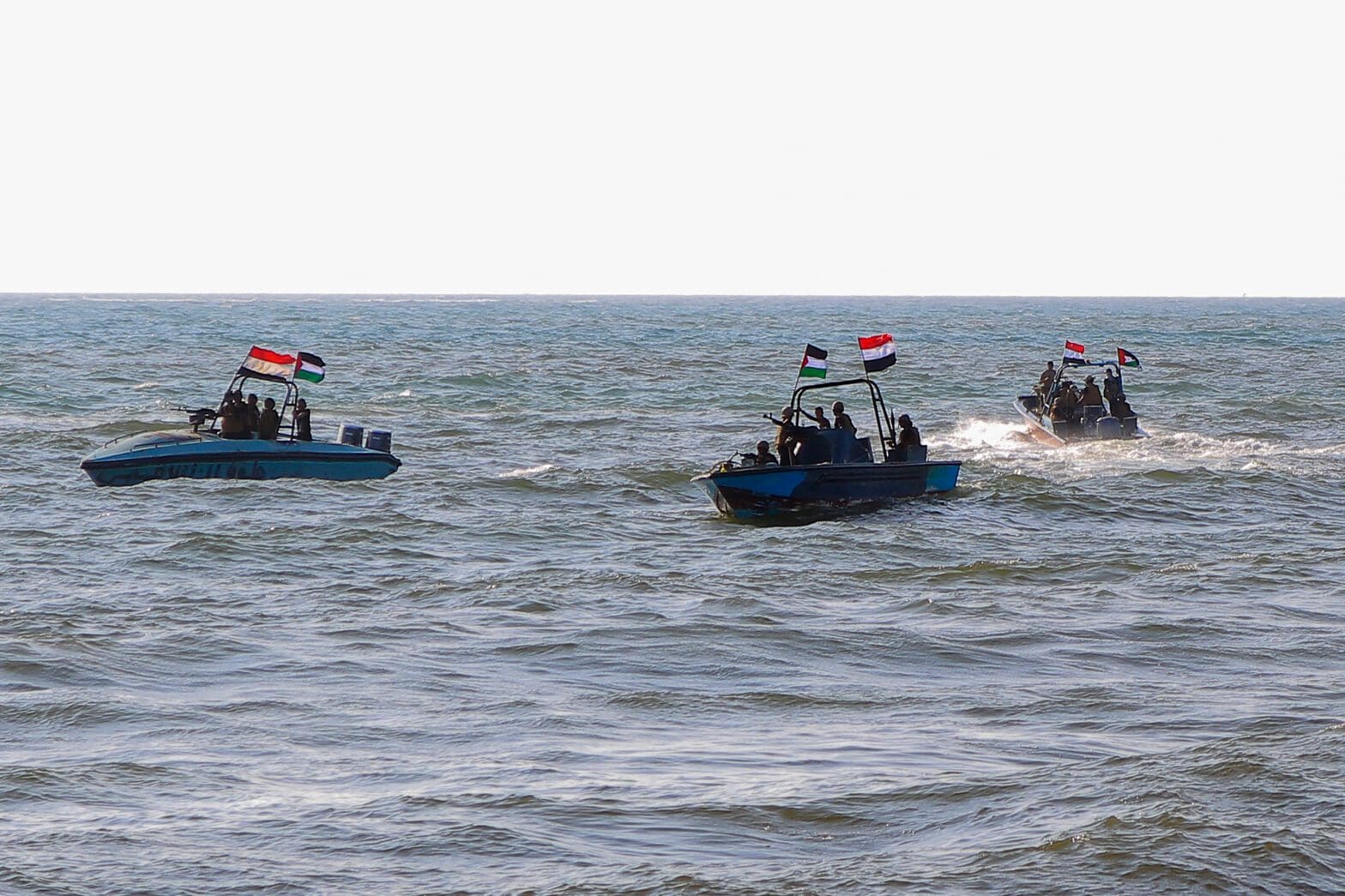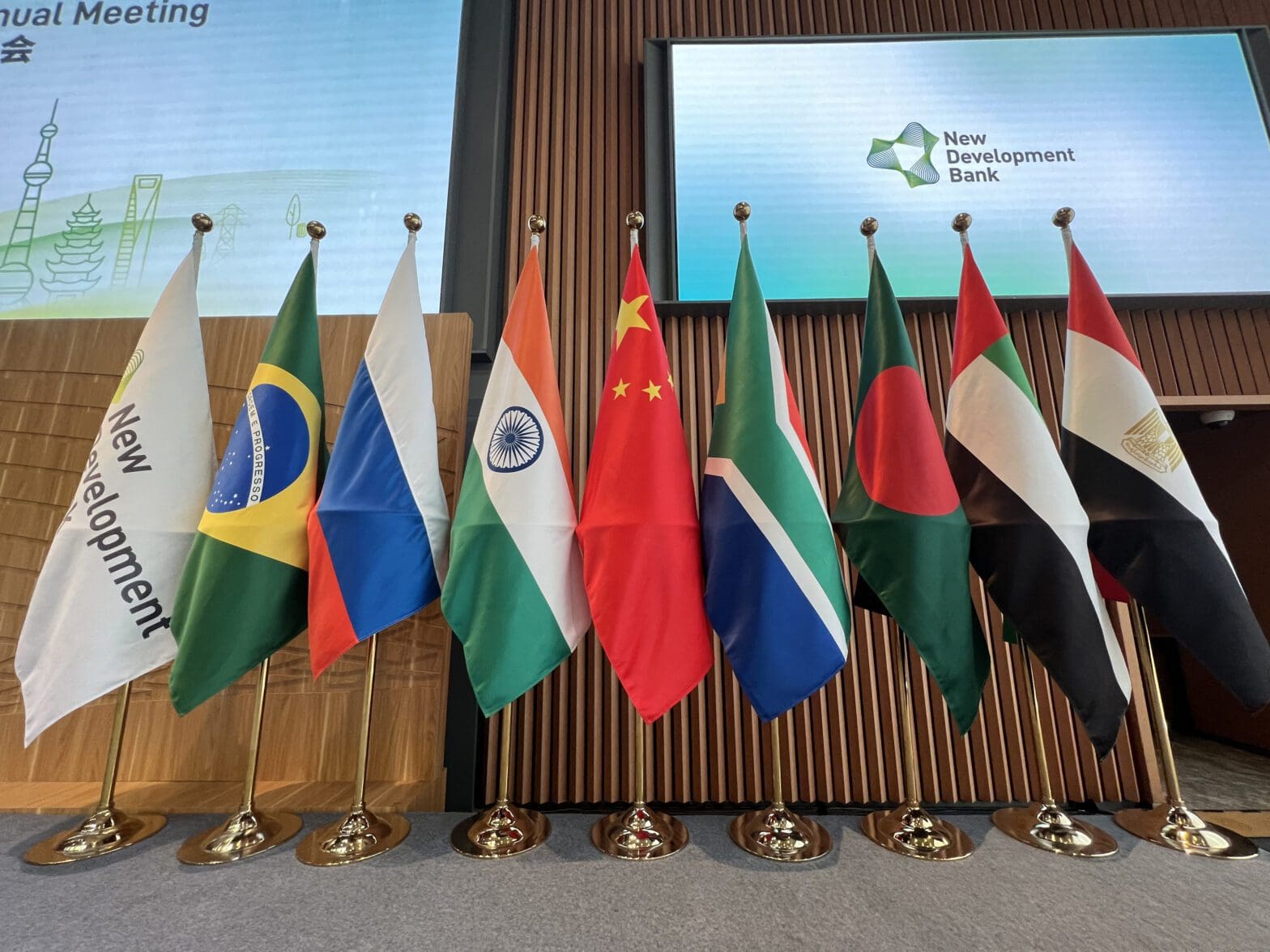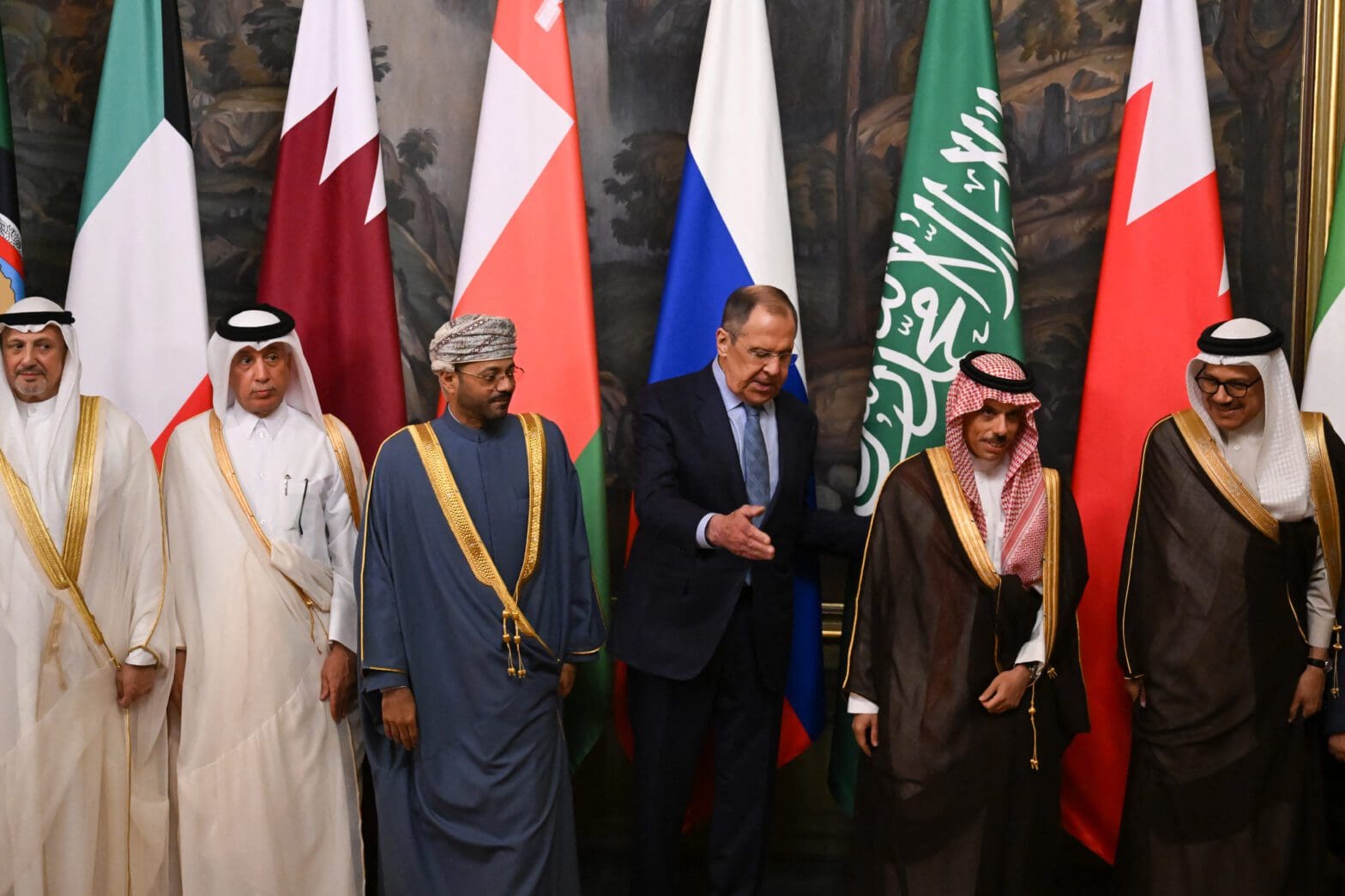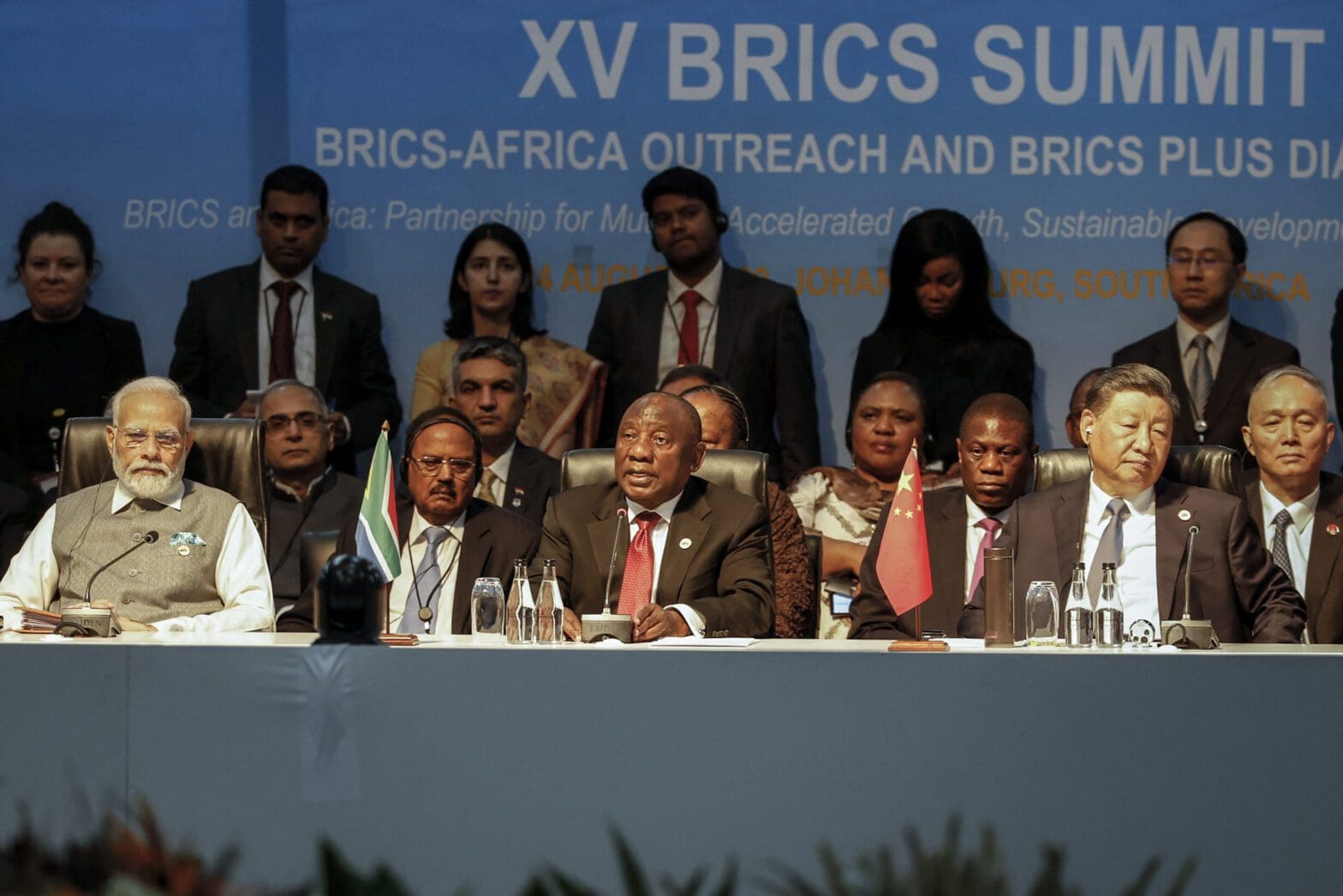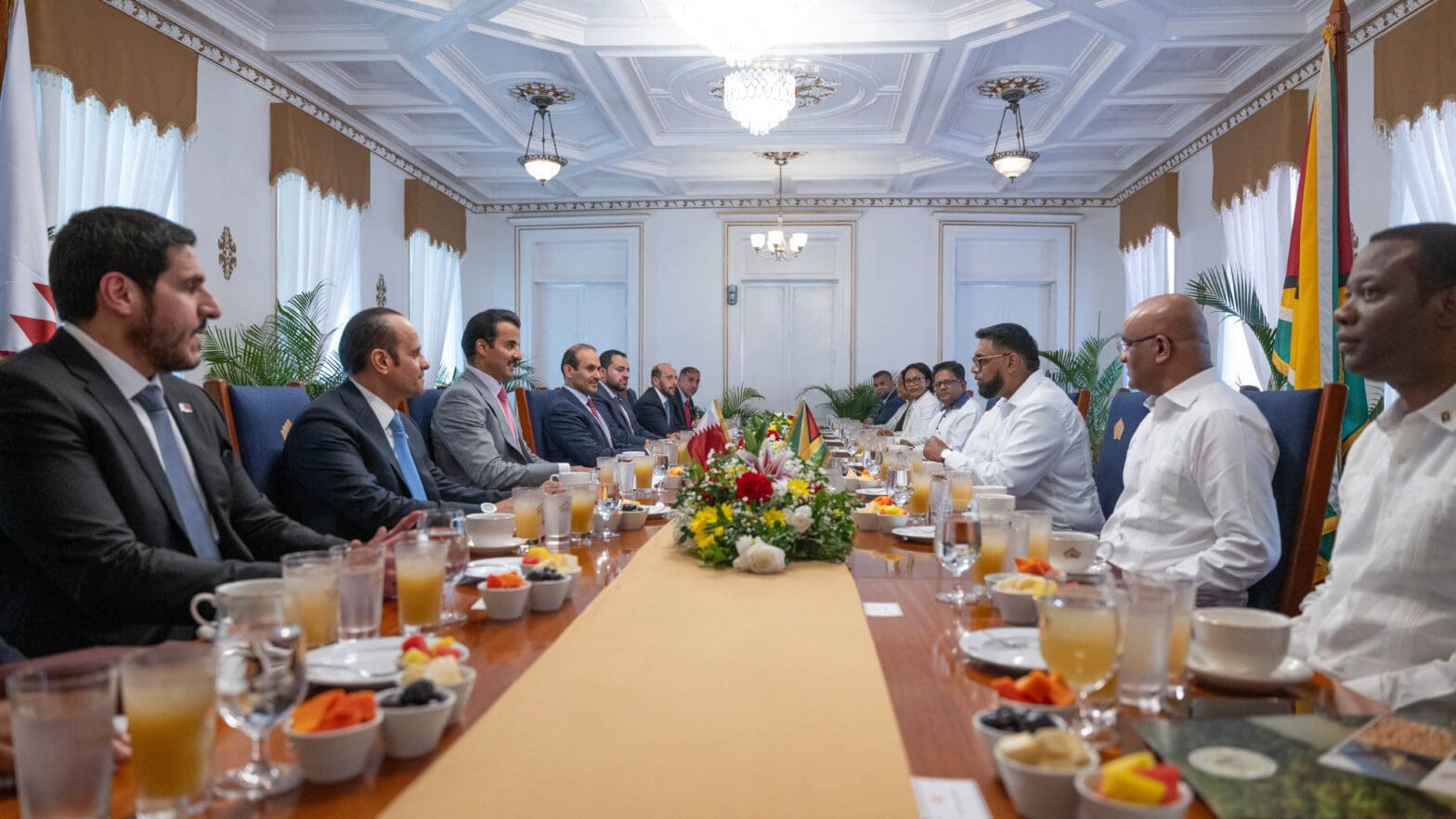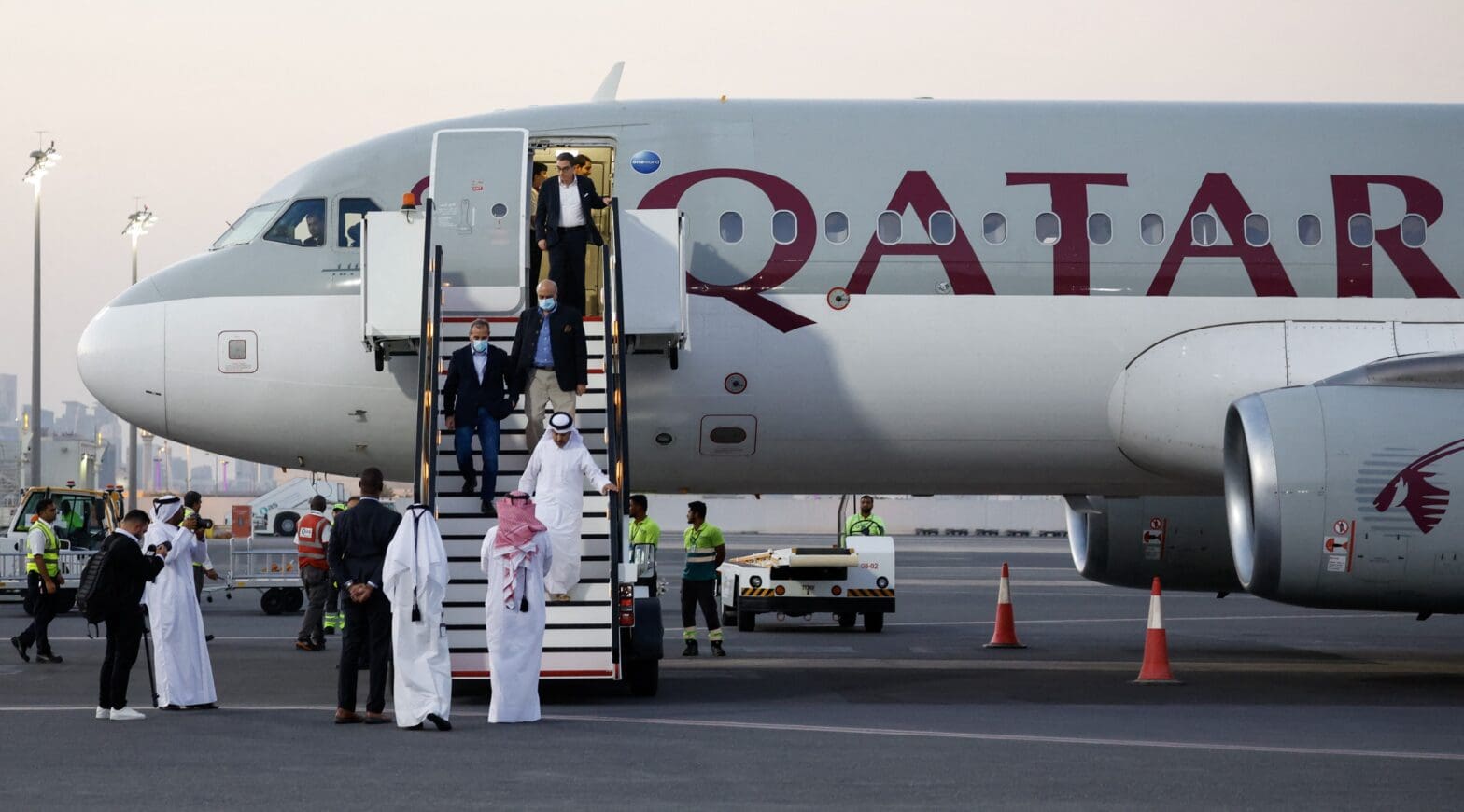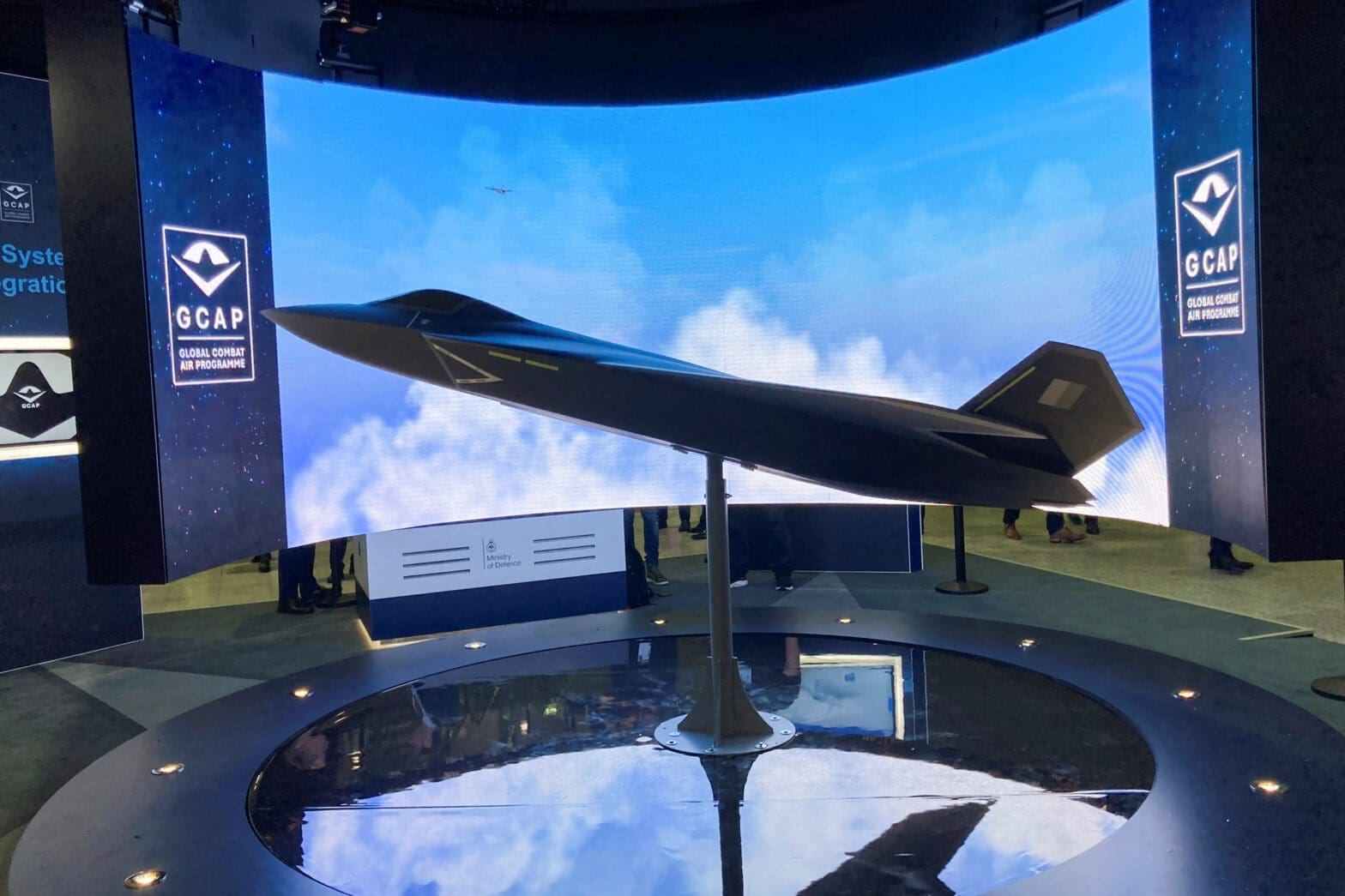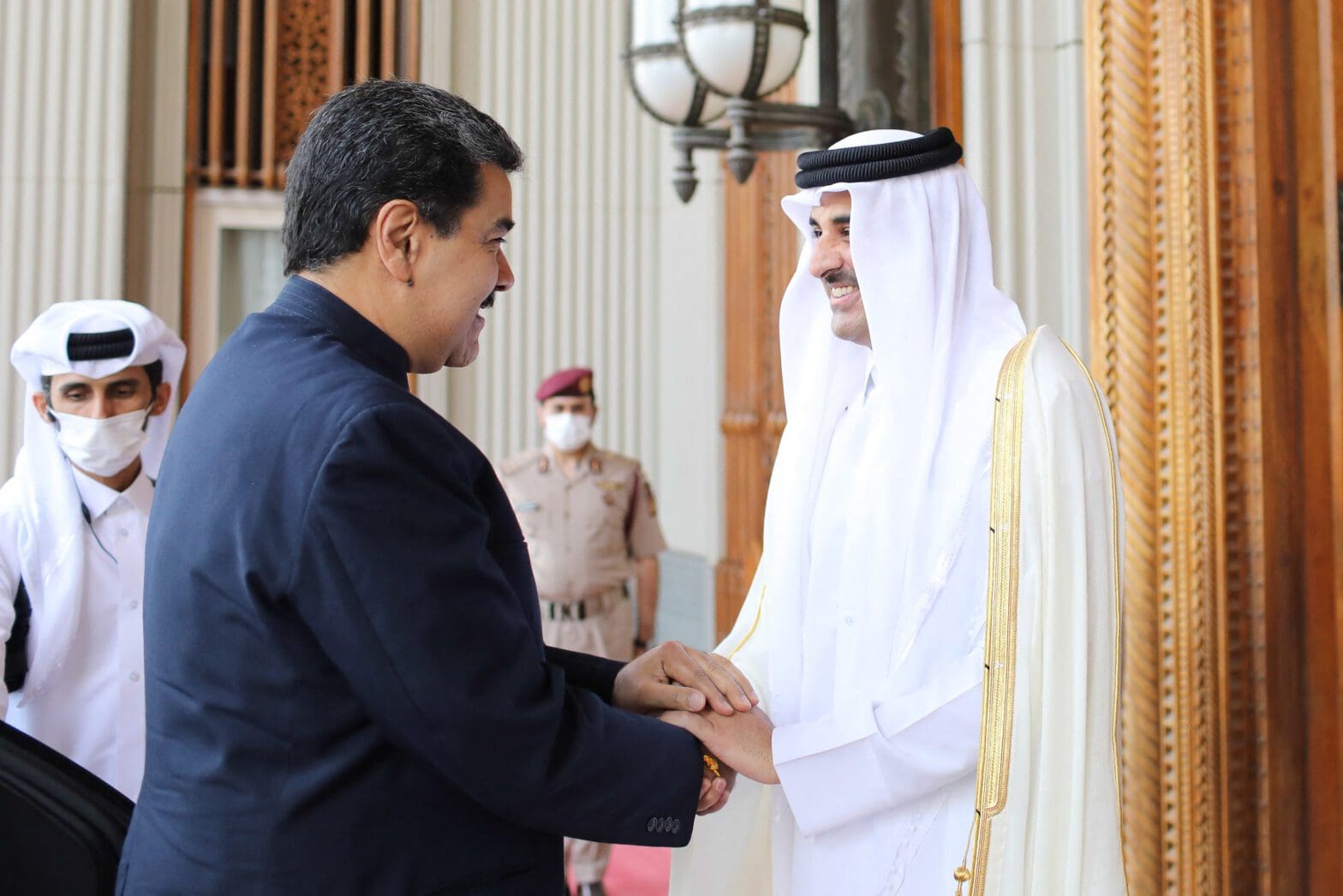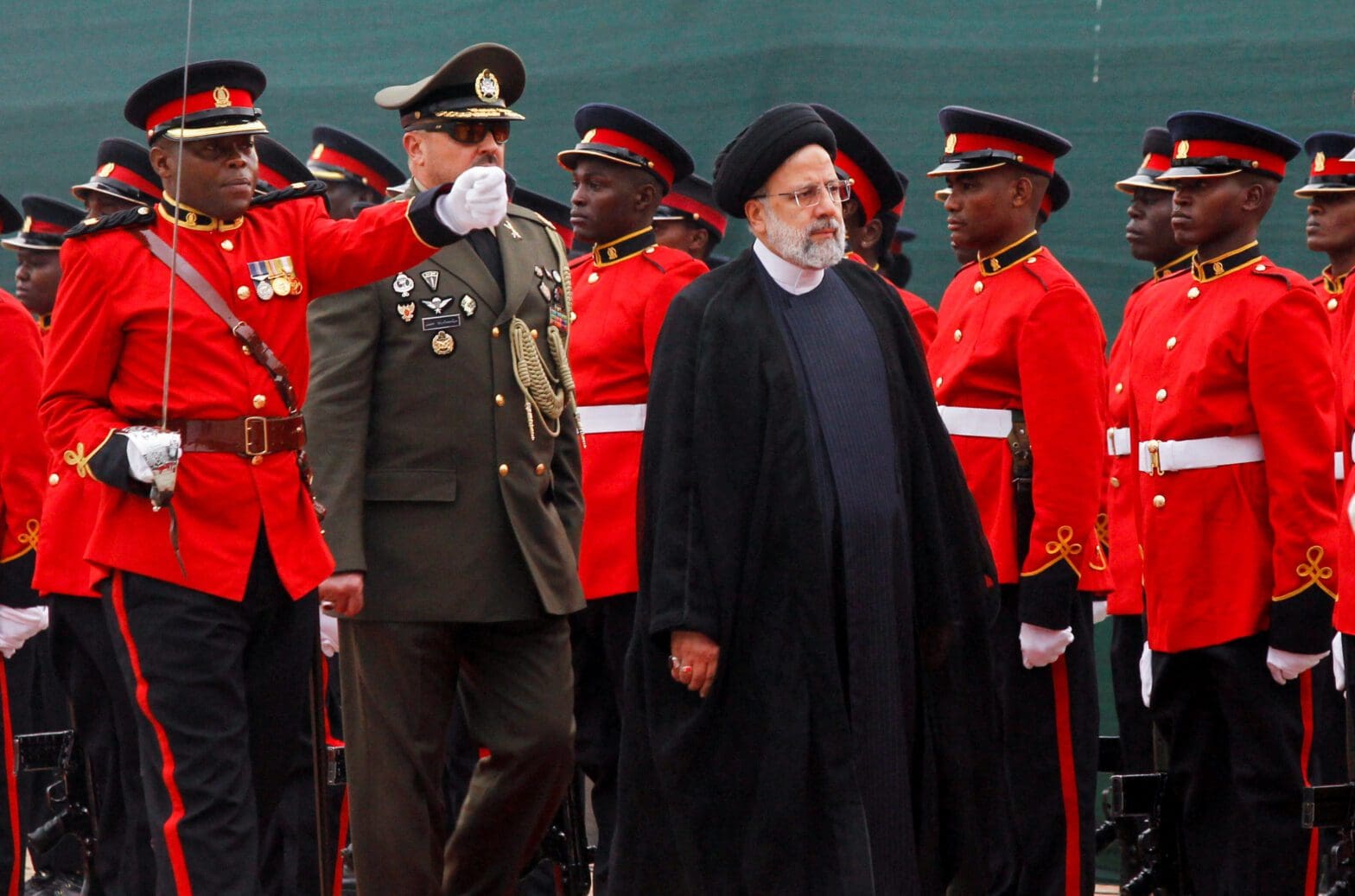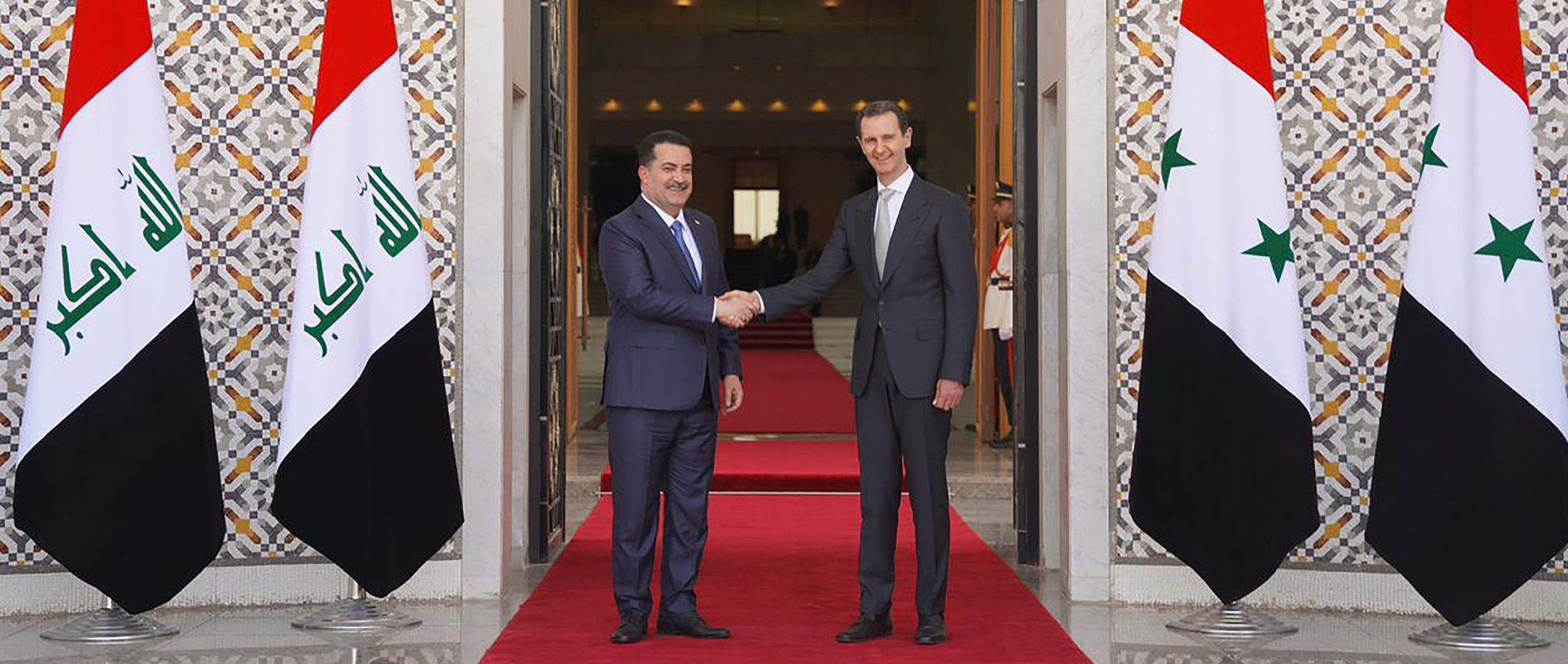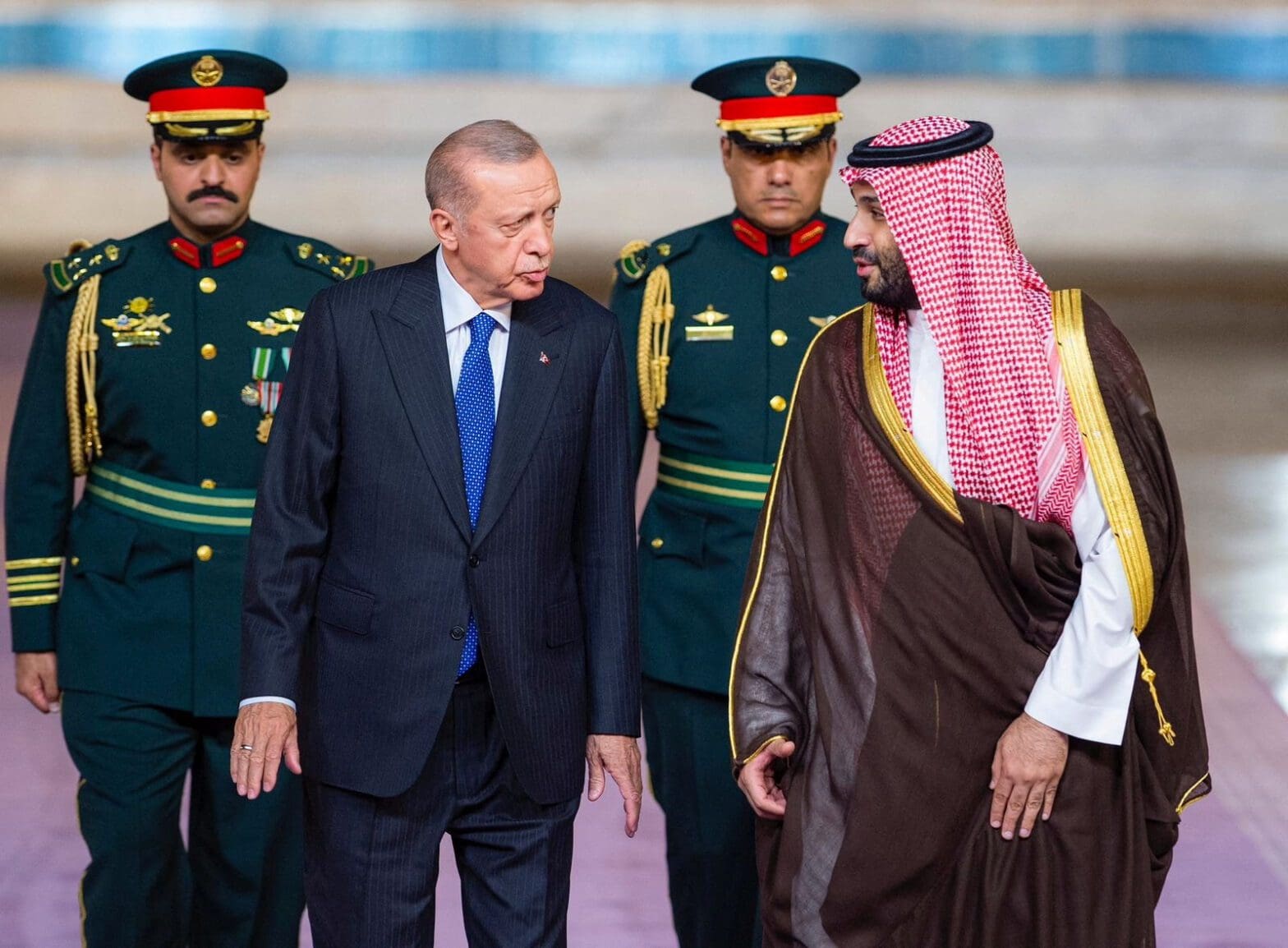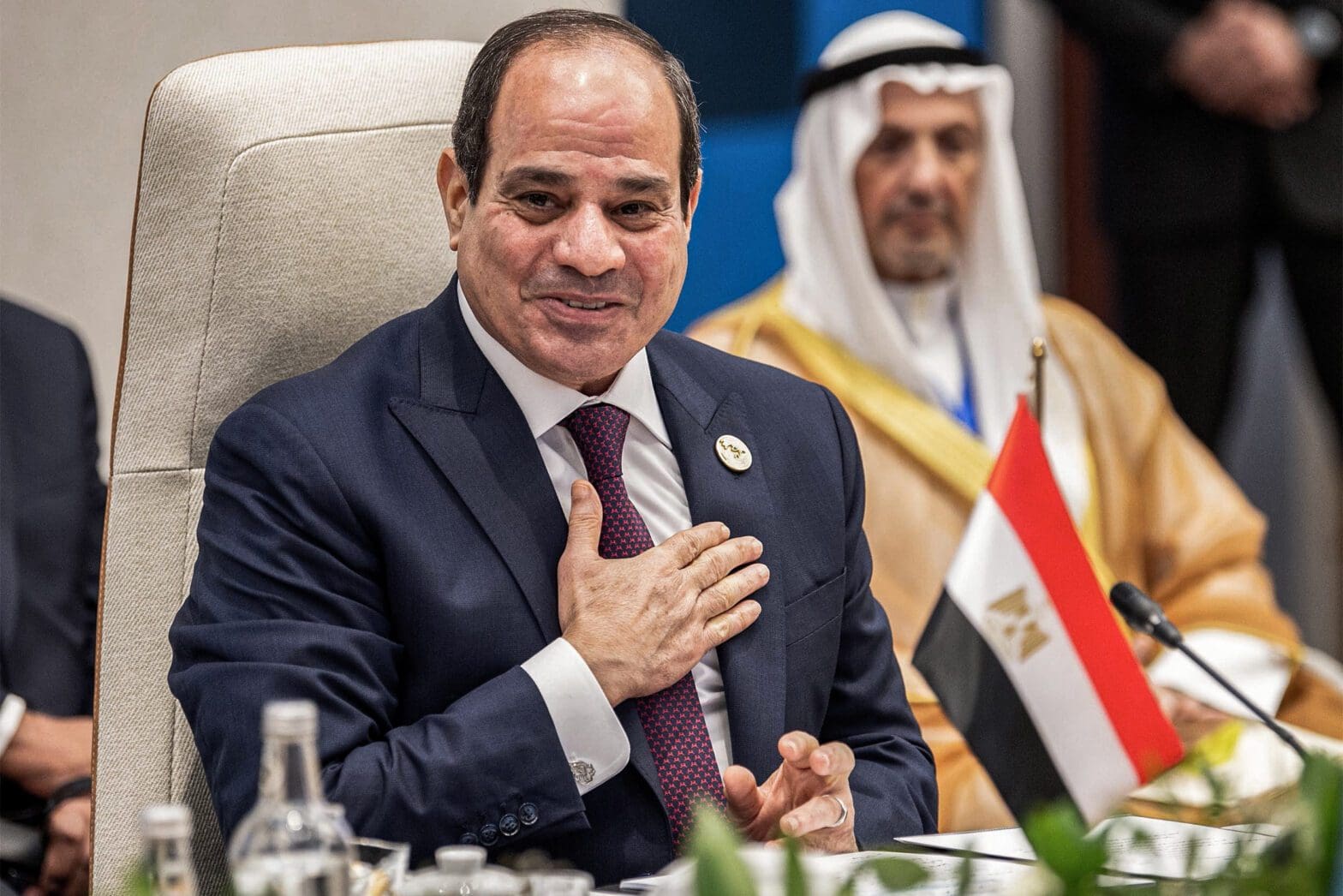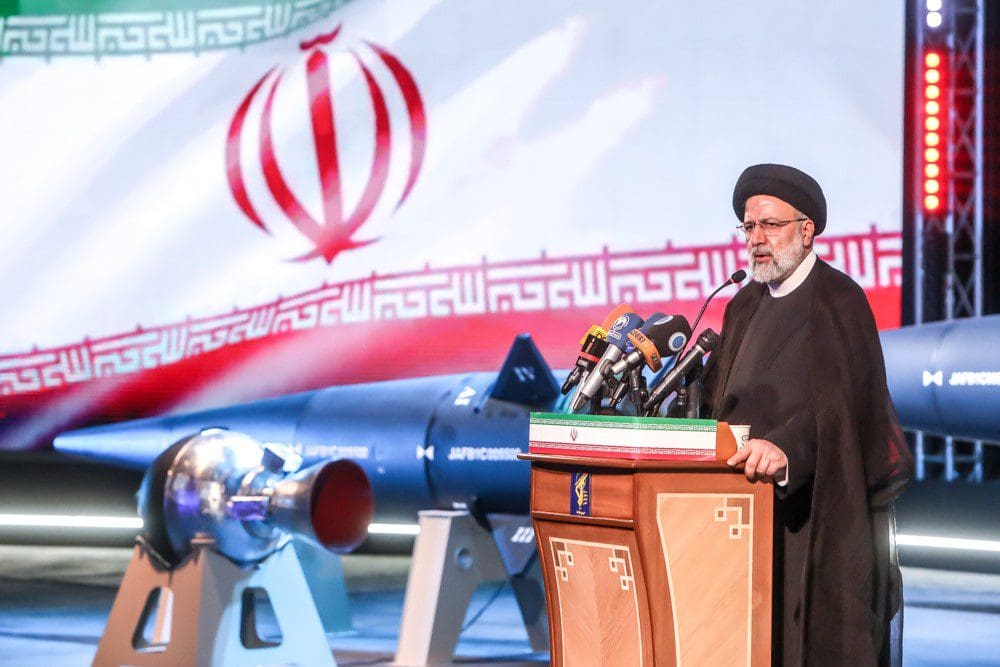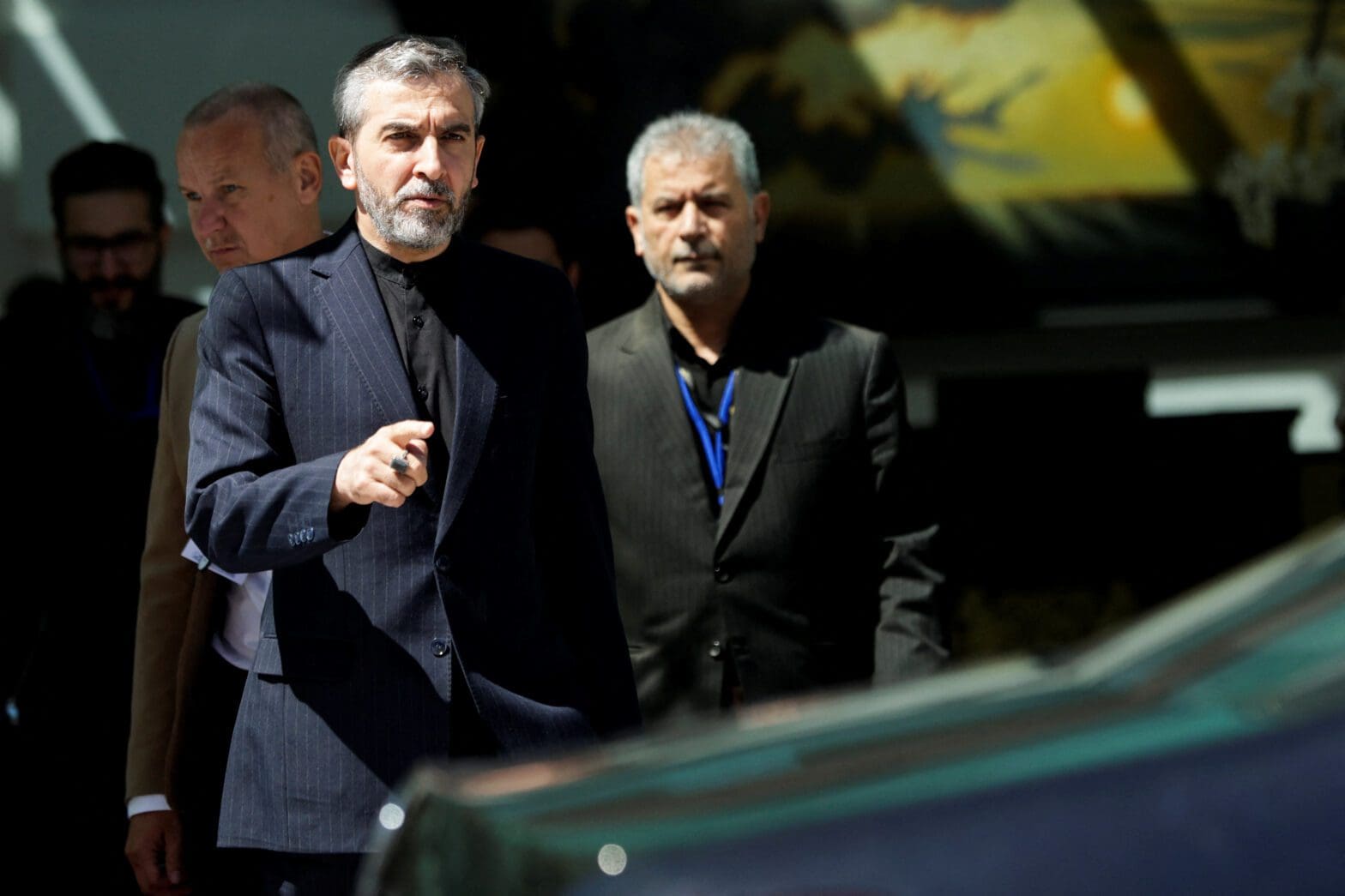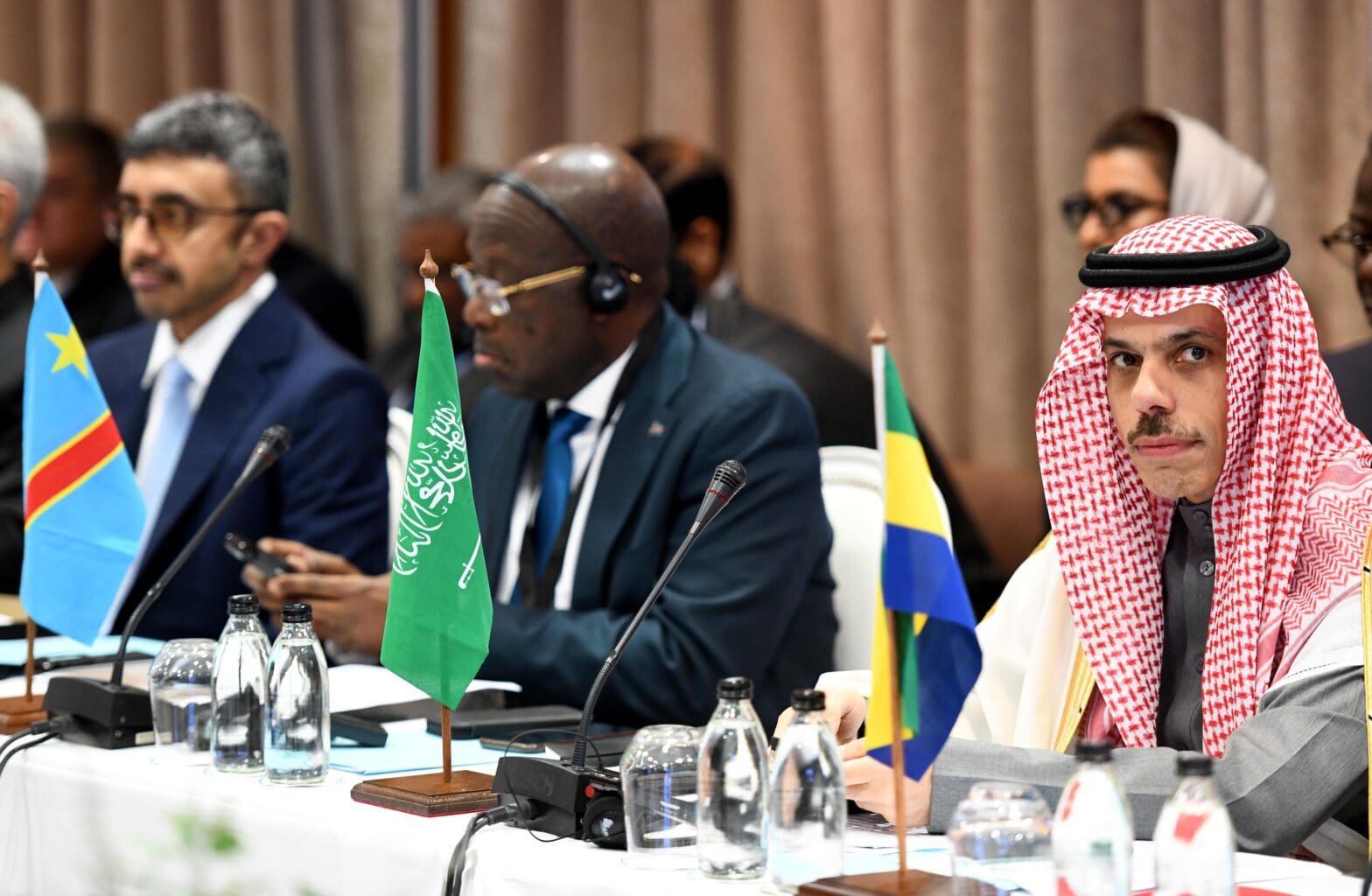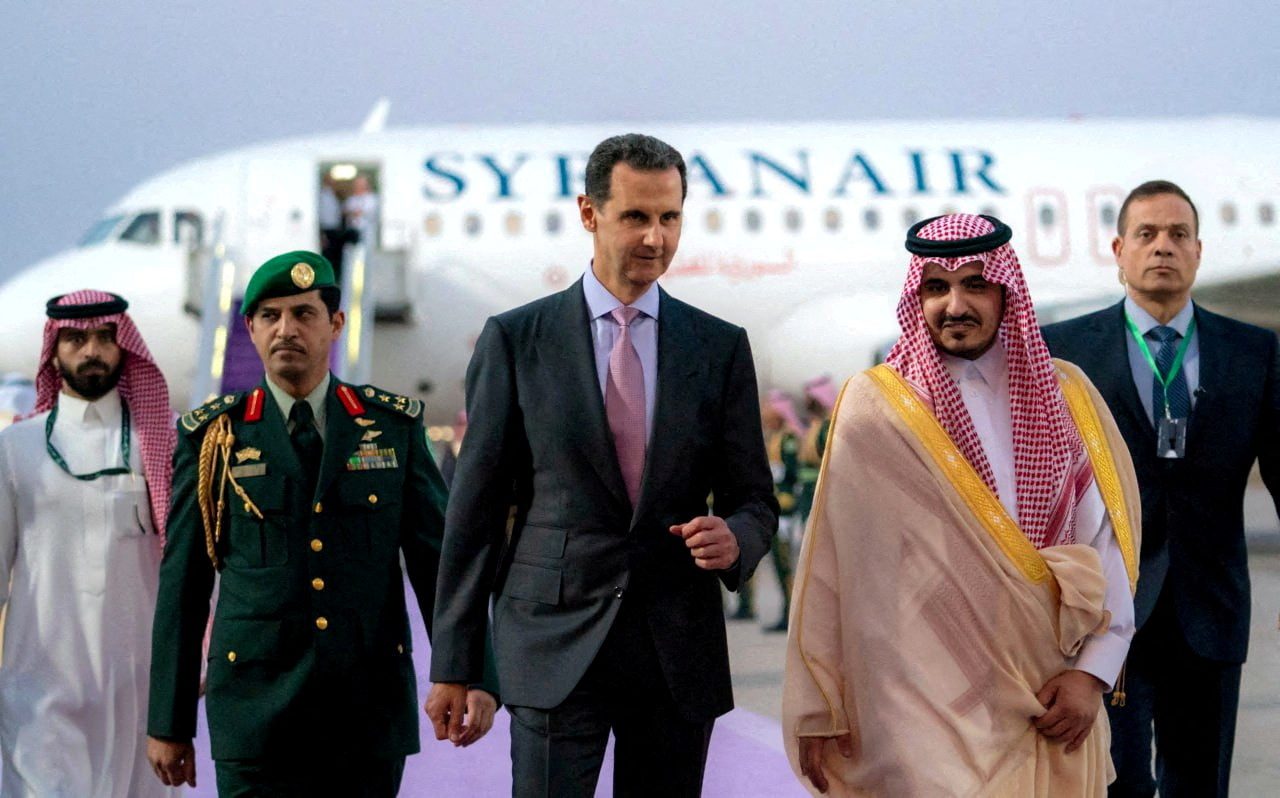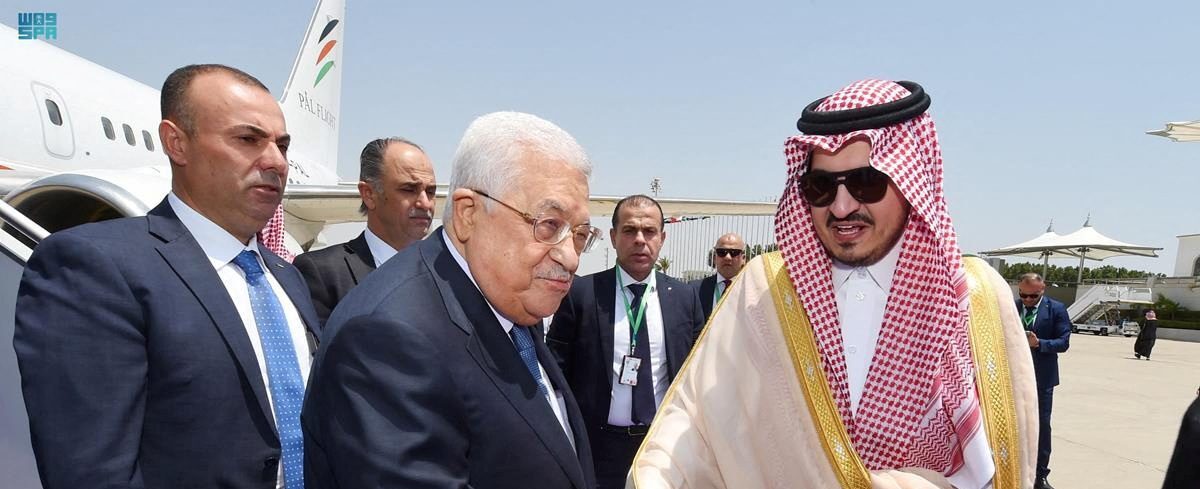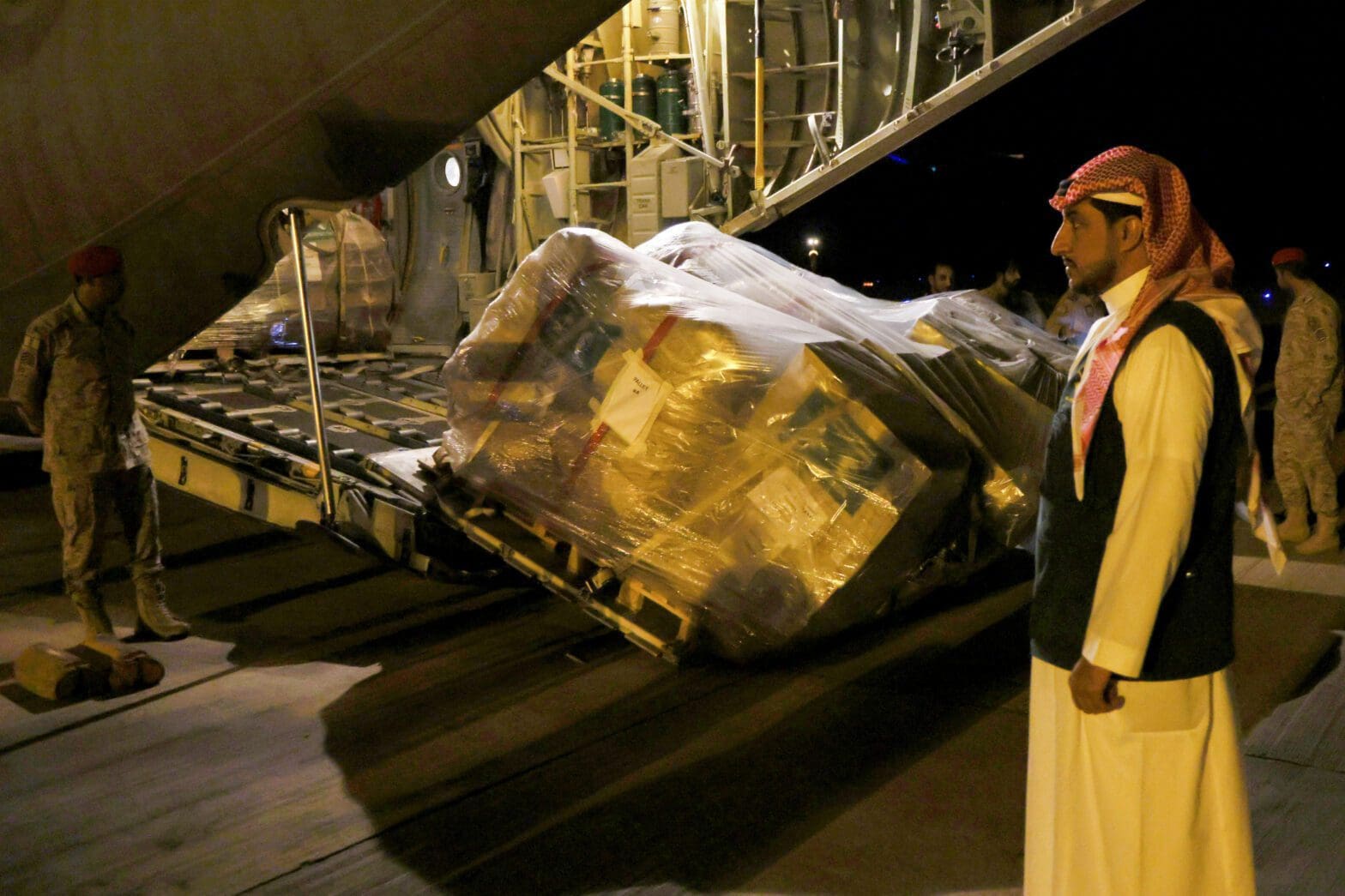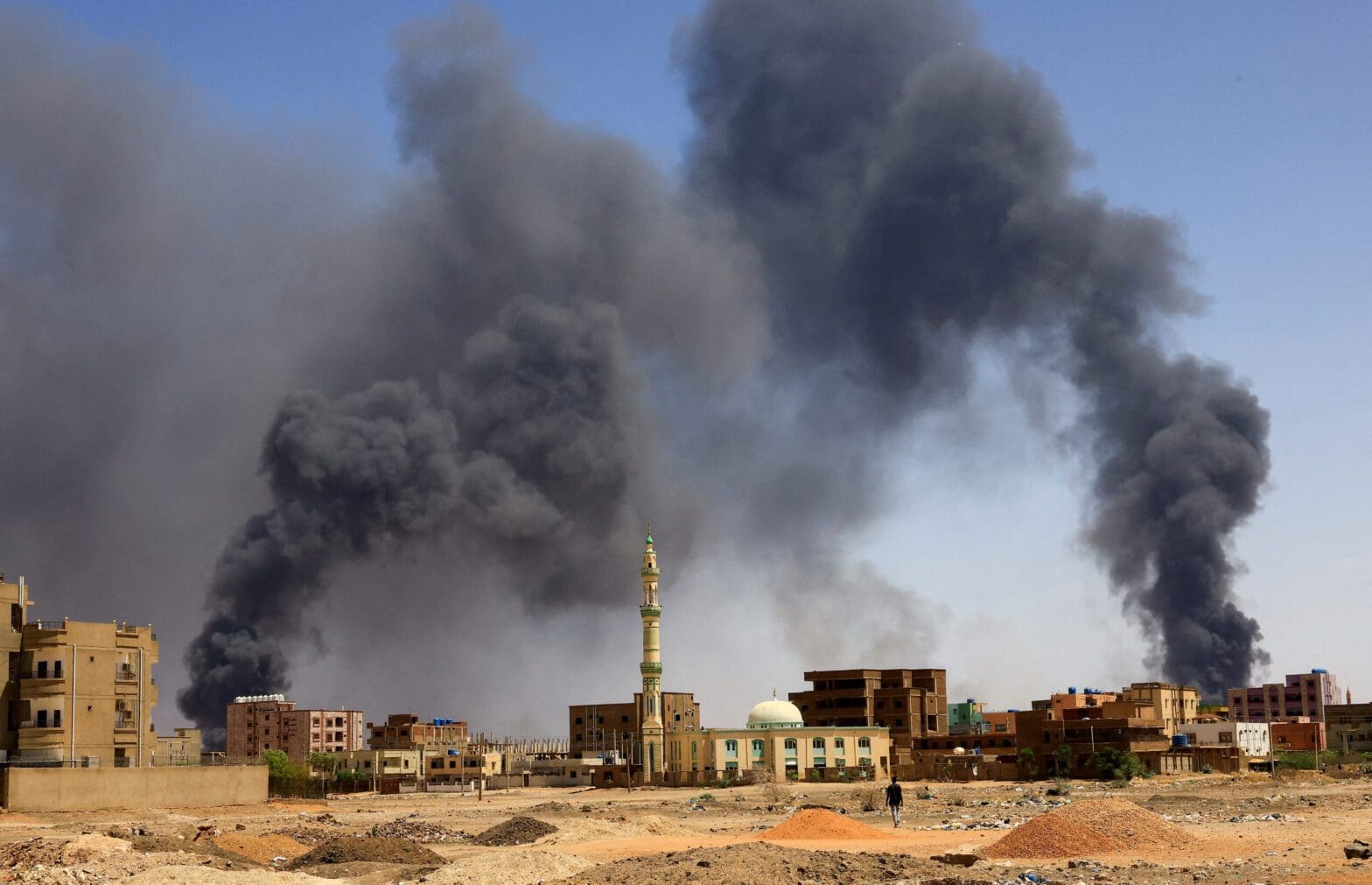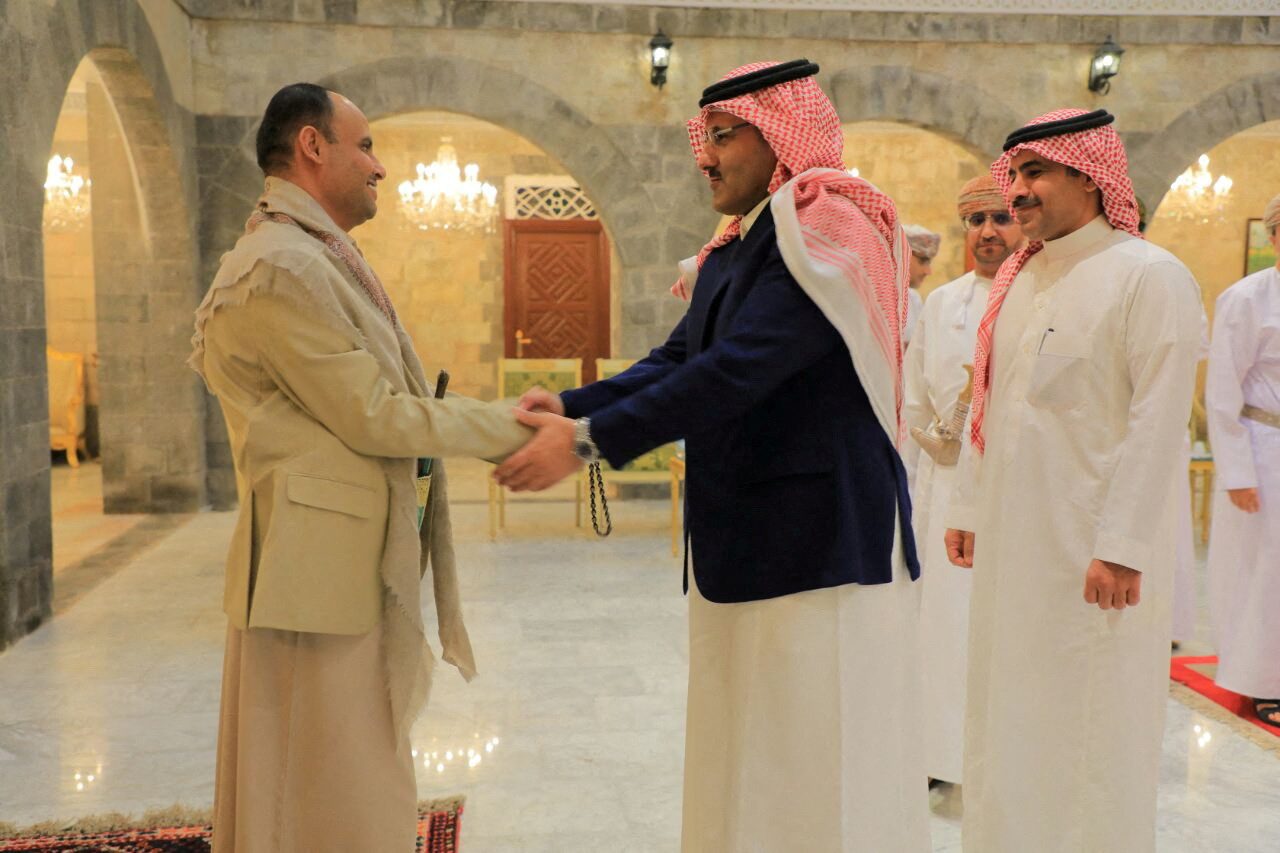With the December collapse of the Assad regime in Syria, 2024 came to a close in a dramatic and region-altering fashion. This, along with the numerous other major trend lines and points of conflict, likely makes 2025 a year that will be significant in reshaping the region’s future. Looking forward to what may be coming,… Continue reading MENA Outlook for 2025
Afkar Issue: Great Power Competition
With the Axis of Resistance in Retreat, How Will the Iranian People Respond?
Iran’s regional policy is on the backfoot. Years of patronage and investment in the “Axis of Resistance,” a network of friendly actors that share Iran’s hostility toward U.S. hegemony in the Middle East, has unraveled in a short period of time and caught the Iranian regime off guard. While Iran’s leadership scrambles for a response,… Continue reading With the Axis of Resistance in Retreat, How Will the Iranian People Respond?
Can the Israel-Hezbollah Ceasefire Hold?
After more than a year of hostilities that intensified dramatically in recent months, Hezbollah and Israel have agreed to a ceasefire, but the fragile agreement has already been tested by reported violations. In this interview with Afkār, Saoud El Mawla, visiting senior fellow at the ME Council, examines the deal’s significance and durability, as well… Continue reading Can the Israel-Hezbollah Ceasefire Hold?
Thinking Through China’s Middle East Policy Amid War
For many years, China has been expanding its influence to every corner of the globe. And while its strategic priorities remain anchored in the Western Pacific—where it faces great-power rivalry with the United States, myriad territorial disputes, tensions on the Korean Peninsula and the potential for military conflict over the Taiwan Strait—its steadily growing presence… Continue reading Thinking Through China’s Middle East Policy Amid War
Trump 2.0 and the Gulf’s Strategic Future
President-elect Donald Trump’s first term in office reshaped U.S.-Gulf relations. His approach focused on cultivating personal bonds with leaders of Gulf Cooperation Council (GCC), signing massive arms deals, and for the most part not touching human rights issues. Gulf statesmen mostly welcomed this approach, which provided immediate defense assurances without challenging their sovereignty. However, with… Continue reading Trump 2.0 and the Gulf’s Strategic Future
Trump’s Return and Implications for the Middle East
On November 6, within hours of closing the polls, Donald Trump was declared the winner of the 2024 presidential election in the United States, defeating Vice President Kamala Harris by a wide margin. Trump’s remarkable triumph, which will return him to the White House after his defeat to Joe Biden in 2020, comes at a… Continue reading Trump’s Return and Implications for the Middle East
Beyond BRICS Summit, UAE and Brazil Deepen Ties
The BRICS+ summit being held on October 22 and 23 in Russia marks the first with the United Arab Emirates as a full member. Since joining the bloc at the beginning of the year, the Gulf state has ramped up its cooperation with other members of the bloc, particularly Brazil. Already the Emirates’ largest trade… Continue reading Beyond BRICS Summit, UAE and Brazil Deepen Ties
A Region Under Fire
Editor’s Note: There Are No Winners Here Omar H. Rahman, Fellow and Editor of Afkār, Middle East Council on Global Affairs The Israeli-Palestinian conflict did not begin on October 7, 2023. Decades of military occupation, colonial land theft and systemic deprivation had already pushed Palestinians into a state of constant struggle, laying the groundwork… Continue reading A Region Under Fire
Ethiopia-Somalia Dispute: What Is at Stake for MENA? – Council Views
On January 1, the self-proclaimed Republic of Somaliland and landlocked Ethiopia signed a controversial memorandum of understanding (MoU) granting the latter port access to the Red Sea. In exchange for a 50-year lease of coastline near the strategic port of Berbera for commercial and naval uses, Addis Ababa agreed to consider recognizing Somaliland as a… Continue reading Ethiopia-Somalia Dispute: What Is at Stake for MENA? – Council Views
Can China and the U.S. Cooperate in the Middle East?
Cooperation between China and the United States in the Middle East has become a common topic of discussion between academics and experts these days. The two great powers have vested interests in the region that are jeopardized by its chronic instability and the growing threat of regional war. Cooperation between the two should be a… Continue reading Can China and the U.S. Cooperate in the Middle East?
Trump Redux Could Bring in the Law of Unintended Consequences
One hundred days ahead of elections in November, former U.S. president Donald Trump is polling strongly despite the emergence of Vice President Kamala Harris as the Democrat candidate. What would the implications be for us in the Gulf and around the world of a Trump presidency redux? From public statements and his record in the… Continue reading Trump Redux Could Bring in the Law of Unintended Consequences
Middle East NATO Office and Regional Security
During its seventy-fifth annual summit, in July of this year, the North Atlantic Treaty Organization (NATO) announced plans to open its first Middle East liaison office in Jordan. Amid heightened uncertainty in the Middle East and North Africa (MENA) region, NATO’s decision to open this office cements Western powers’ vested interests in the Middle East… Continue reading Middle East NATO Office and Regional Security
The Unlikely Election of Another Reformist in Iran
Until just a month ago, few people outside of Iran had heard the name Masoud Pezeshkian. The 69-year-old physician was the representative for the northwestern city of Tabriz in the Iranian parliament and had previously served as the minister of health in the second administration of the reformist President Mohammad Khatami between 2001 to 2005.… Continue reading The Unlikely Election of Another Reformist in Iran
Central Bank Digital Currencies’ Impact on MENA Economies – Council Views
Amid the growing prominence of decentralized finance, central banks are increasing their endeavors to maintain control over financial systems, including through central bank digital currencies (CBDCs). Recent strides by MENA countries indicate the region’s growing interest in CBDCs. Earlier this month, Saudi Arabia’s central bank joined a cross-border trial for CBDCs, Project mBridge, which already… Continue reading Central Bank Digital Currencies’ Impact on MENA Economies – Council Views
The Importance of Diplomacy: How Qatari Mediation is Impacting Gaza
The ongoing Gaza war has showcased Qatar’s strengths as a mediator. Although Doha may not appear to be a major international player at first glance, it has nonetheless proven to be an invaluable actor in the United States’ attempts to end the war. Despite its small size and population, Qatar plays an outsized role… Continue reading The Importance of Diplomacy: How Qatari Mediation is Impacting Gaza
The Middle East in the Wake of October 7: Interview with Tarik M. Yousef Marking 100 Afkār Posts
We at Afkār are delighted to announce that we have reached a new milestone, our 100th post! To mark the occasion, we have recorded and transcribed a special interview with the Director of the Middle East Council on Global Affairs, Tarik M. Yousef. The in-depth interview was conducted by our editor, Omar H. Rahman, and… Continue reading The Middle East in the Wake of October 7: Interview with Tarik M. Yousef Marking 100 Afkār Posts
What Does President Raisi’s Death Mean for the Islamic Republic?
On May 19, Iranian President Ebrahim Raisi, accompanied by his Foreign Minister Hossein Amirabdollahian, was tragically killed in a helicopter crash. The helicopter was en route to an event in the mountainous East Azerbaijan province when it encountered severe weather conditions, leading initially to what was described as “a hard landing.” Despite prompt rescue efforts,… Continue reading What Does President Raisi’s Death Mean for the Islamic Republic?
Economic Diversification is the GCC’s Top Priority
It is a paradoxical truth that nations highly dependent on natural resources tend to be poor economic performers. Such countries are exposed to ongoing adverse shocks, including price jolts, volatile demand and supply, and natural disasters. These factors can stir up macroeconomic instability and higher economic risks – otherwise known as the “natural resource curse”. … Continue reading Economic Diversification is the GCC’s Top Priority
The Development Road Project – Council Views
Following a momentous visit to Iraq by Turkish President Recep Tayyip Erdogan, Türkiye, Iraq, Qatar, and the United Arab Emirates signed an initial agreement to collaborate on the Development Road project. The $17 billion project envisages region-wide transportation routes and infrastructure that would transform Iraq’s infrastructure into a transit hub connecting Asia and Europe over… Continue reading The Development Road Project – Council Views
What Next for the War Between Iran and Israel?
The Islamic Republic of Iran’s direct attack against Israel was the first of its kind since the country’s clerical rulers seized power in 1979. In a major show of force, Iran launched more than 300 drones and missiles from its own territory—an unprecedented break with its past approach. Israel and its allies, including the United… Continue reading What Next for the War Between Iran and Israel?
Iran-Israel Tensions Emerge from the Shadows – Council Views
On April 13, Iran attacked Israel directly for the first time in its history, retaliating for Israel’s killing of three top Iranian commanders in Damascus on April 1. Israel has since responded with a limited strike, and the United States and its allies imposed expanded sanctions on Iran. Middle East Council scholars examine the implications… Continue reading Iran-Israel Tensions Emerge from the Shadows – Council Views
Can BRICS Really Drop the Dollar?
The new year saw four of the largest economies in the Middle East and North Africa join the BRICS economic union. The accession by Egypt, Iran, Saudi Arabia, and the United Arab Emirates represents a strategic step away from the United States and Europe. For the new BRICS members, it could open new opportunities for… Continue reading Can BRICS Really Drop the Dollar?
Interview: Erdogan’s Last Elections?
1. In 2019, the leading opposition party, the Republican People’s Party (CHP), won mayoral elections in Türkiye’s three biggest cities—Istanbul, Ankara, and Izmir—marking the height of opposition unity under the Nation Alliance (Millet İttifakı). This time, despite the Nation Alliance’s dissolution, the opposition won even more cities in a landslide victory for the CHP not… Continue reading Interview: Erdogan’s Last Elections?
Interview: Russia in the Middle East
1. Over two years into Russia’s full-scale invasion of Ukraine, Russians have just gone to the polls and Ukraine appears set to postpone an election slated for the end of March. In Russia, Putin reportedly spent more than $1 billion on a public relations campaign in the lead-up to the election. What is the significance… Continue reading Interview: Russia in the Middle East
Erdogan Treads Delicate Line Between Words and Deeds on Gaza
The war between Israel and Hamas has placed Turkish President Recep Tayyip Erdogan in a tough position. While he has responded with fiery rhetoric against Israel’s leadership and its bombardment of the Gaza Strip, in practice his actions have been constrained by various factors, particularly Türkiye’s dire economic situation. While Erdogan’s forceful criticism of Israeli… Continue reading Erdogan Treads Delicate Line Between Words and Deeds on Gaza
Iran and Türkiye Seek to Avoid Regional War for Different Reasons
On January 24, the presidents of Iran and Türkiye met in Ankara amid a rapidly deteriorating security situation in the Middle East. While the meeting, which had been postponed twice, covered a broad range of bilateral topics, the war on Gaza and related clashes across the region provided an inescapable backdrop. Although the two sides… Continue reading Iran and Türkiye Seek to Avoid Regional War for Different Reasons
Saudi-Iranian Reconciliation and How Can it be Strengthened
March 10 marks a year since Saudi Arabia and Iran announced they were mending ties and resuming diplomatic relations, a landmark deal between the regional foes after mediation by China. Since their joint statement in Beijing, the two have forged solid connections, interacting regularly at the ministerial level. However, both sides need to invest more… Continue reading Saudi-Iranian Reconciliation and How Can it be Strengthened
Winning the Peace in the Middle East’s Fragile State
The military escalation since the start of the war in Gaza on October 7 highlights the vulnerability of the Middle East and North Africa (MENA) to a relapse of conflict, potentially in a conflagration that could engulf the region at large. Over years of devastating intra-state conflicts and proxy wars in Iraq, Syria, Libya, and… Continue reading Winning the Peace in the Middle East’s Fragile State
Regional Diplomacy Amid the War in Gaza
Over the past four months, Middle Eastern nations have been dismayed by the near-unconditional support from Western governments to Israel as it has bombarded and besieged the Gaza Strip and is now ramping up an assault on Rafah—a sliver of territory where more than a million displaced civilians have gathered. As a result, some have… Continue reading Regional Diplomacy Amid the War in Gaza
Iran’s Strategy in the War on Gaza
The recent drone strike on American soldiers stationed near the Jordan-Syria border, and Washington’s retaliatory strikes in Iraq and Syria, underscore the dangerous potential for a major escalation between the United States and Iran that could engulf the wider region. Washington and Tehran have engaged in a tit-for-tat conflict for several months now, which has… Continue reading Iran’s Strategy in the War on Gaza
US in the Red Sea: Security Concerns or Power Play?
The waters of the Red Sea are heating up. In recent weeks, the United States has intensified efforts to clamp down on actions taken by the Houthis, a Yemen-based movement otherwise known as Ansar Allah, to disrupt maritime shipping believed to be connected to Israel as a retaliation for its near-total destruction of the Gaza… Continue reading US in the Red Sea: Security Concerns or Power Play?
Can the expanded BRICS pave a new path in global development?
At the start of this year, the so-called BRICS group of economies, namely Brazil, Russia, India, China, and South Africa, expanded its membership to five new countries, four of which are from the Middle East and North Africa region. As a global and heterodox bloc comprised of what were once termed “developing nations,” the expanded… Continue reading Can the expanded BRICS pave a new path in global development?
GCC can emerge as ‘Middle Powers’ in second Cold War
We are living in a second Cold War. A multipolar world is evolving as governments adopt policies that are leading to increased economic and financial fragmentation. Trade, foreign direct investment, and financial flows are increasingly encumbered by regulatory and legal restrictions. The number of global trade restrictions introduced each year has nearly tripled since… Continue reading GCC can emerge as ‘Middle Powers’ in second Cold War
Algeria at the BRICS’ Doorstep: A Journey of Aspirations and Opportunities
At the 15th BRICS Summit in South Africa, Algeria’s candidacy was not retained to join the 5-member grouping; six out of 23 candidates were chosen: Argentina, Egypt, Ethiopia, Iran, Saudi Arabia, and the UAE. While politically, Algeria is the ideal candidate, its economic standing might not have been attractive enough, at least not yet. The… Continue reading Algeria at the BRICS’ Doorstep: A Journey of Aspirations and Opportunities
Qatar’s Next Diplomatic Step in Latin America?
Qatar has garnered significant global attention for its role in negotiating the release of hostages held by Hamas after its attack on Israel on October 7. The Gulf state’s recent mediation efforts have also extended beyond the borders of its own region, particularly in Latin America where its economic and diplomatic channels are widening. On… Continue reading Qatar’s Next Diplomatic Step in Latin America?
How Acting as Mediator Expands Qatar’s Geopolitical Reach
Qatar is increasingly flexing its diplomatic muscles. A high-profile prisoner exchange between the United States and Iran earlier this month is the latest in a string of painstaking agreements mediated by the Gulf state, and could lead to further diplomatic efforts as the countries try to jumpstart stalled nuclear talks. The prisoner swap was the… Continue reading How Acting as Mediator Expands Qatar’s Geopolitical Reach
Why Japan Should Welcome Saudi Arabia into the GCAP Fighter Jet Alliance
Saudi Arabia has been intensifying its diplomatic efforts to join the Global Combat Air Programme (GCAP), a joint effort by Japan, the United Kingdom and Italy to build a next-generation combat jet. When Japanese Prime Minister Fumio Kishida visited Saudi Arabia in July, Crown Prince Mohammed bin Salman directly asked to join the alliance. But… Continue reading Why Japan Should Welcome Saudi Arabia into the GCAP Fighter Jet Alliance
Mediating Multipolarity: Qatar’s Role in U.S.-Venezuela Negotiations
In June, Qatar hosted secret talks between Venezuela and the United States. Doha has an extensive track record of assisting the United States in sensitive negotiations, including a recent prisoner swap with Iran and U.S.-Taliban backchanneling. Qatar’s emergence as a mediator in Venezuela has filled a void left by the Union of South American Nations (UNASUR) and other regional… Continue reading Mediating Multipolarity: Qatar’s Role in U.S.-Venezuela Negotiations
The Limits to Iran’s Trade Push in Africa
In July, Iranian President Ebrahim Raisi embarked on a three-country tour in Africa to expand relations on the continent, the first of its kind by an Iranian leader in more than a decade. The trip, to Kenya, Uganda and Zimbabwe, followed a similar visit to Latin America. Both were part of a strategic push by… Continue reading The Limits to Iran’s Trade Push in Africa
Syria Is Back, But Normalization Has Its Limits
The visit of Iraq’s prime minister to Damascus in July was the latest sign that Syria is mending ties with its neighbourhood, more than a decade after the Arab League suspended its membership over its brutal repression of anti-government protests. As the country’s catastrophic civil war settles, the regime of Bashar al-Assad can chalk up… Continue reading Syria Is Back, But Normalization Has Its Limits
Erdogan’s Gulf Visit Heralds New Regional Approach
Weeks after winning a new five-year term as president of Türkiye, Recep Tayyip Erdogan visited Saudi Arabia, the United Arab Emirates and Qatar with a delegation that included nearly 200 business and government officials. The veteran leader’s first visit to the region since his electoral victory in May is the culmination of a rapid reconciliation… Continue reading Erdogan’s Gulf Visit Heralds New Regional Approach
Will Egypt be the next to normalize relations with Iran?
Speculation has been growing in recent months that Egypt and Iran could be close to putting decades of mutual antagonism behind them. In early May, Egyptian and Iraqi officials said talks were underway in Baghdad with a view to mending relations between the two major regional powers. Later that month, Supreme Leader Ayatollah Ali Khamenei… Continue reading Will Egypt be the next to normalize relations with Iran?
Can Iran-Saudi Rapprochement overcome Tehran’s anti-Western worldview?
When Saudi Foreign Minister Prince Faisal bin Farhan visited Iran in June, many viewed the event as further evidence of rapidly warming relations between the two regional rivals, who resumed diplomatic ties in March after years of open hostility. The image of the Saudi prince alongside Iran’s president, Ebrahim Raisi, conveyed the message that the… Continue reading Can Iran-Saudi Rapprochement overcome Tehran’s anti-Western worldview?
Is a New Iran Nuclear Deal in the Making?
Discreet talks between Iranian and Western officials have prompted rumors that they are nearing a new deal over Iran’s nuclear program, five years after the United States withdrew from the 2015 Joint Comprehensive Plan of Action (JCPOA). The original, landmark agreement had been a linchpin in global efforts to cap Iran’s nuclear development. But after… Continue reading Is a New Iran Nuclear Deal in the Making?
MENA States’ Assertive Approach in the Era of Emerging Multipolarity
As American dominance of the Middle East and North Africa wanes and other world powers step up their efforts to win friends and influence there, long-time U.S. allies are becoming more assertive towards Washington and recalibrating their other ties to better secure their own interests. The growing U.S.-China strategic rivalry will profoundly impact the region… Continue reading MENA States’ Assertive Approach in the Era of Emerging Multipolarity
How Does Iran View Syria’s Return to the Arab League?
In May 2023, Syria returned to the Arab League following a near-12-year suspension. The move has far-reaching implications for both the region and the international community. It came after more than a decade of widespread atrocities by Bashar Al-Assad’s regime against its own citizens, abuses that have cast a long shadow over Syria’s relationships with… Continue reading How Does Iran View Syria’s Return to the Arab League?
Will the Saudi-Iran Rapprochement change anything for the Palestinians?
Amid the zeitgeist of diplomatic rapprochement and normalization in the Middle East—which has recently seen Saudi Arabia and Iran mend ties and Syria’s Bashar al-Assad welcomed at this month’s Arab League summit—the Palestinian Islamist movement Hamas took a step forward to repair its own regional relationships. In mid-April, a delegation of senior Hamas officials, led… Continue reading Will the Saudi-Iran Rapprochement change anything for the Palestinians?
Saudi Arabia and the UAE on Edge as Generals Battle It Out in Sudan
As Sudan’s two main armed forces battle for control of Khartoum, hopes for a truce may lie on the other side of the Red Sea. Saudi Arabia has been holding talks in Jeddah reportedly focused on reaching a ceasefire and ensuring aid can reach those affected by the fighting, which has already killed hundreds of… Continue reading Saudi Arabia and the UAE on Edge as Generals Battle It Out in Sudan
Sudan Conflict: Regional Implications – Council Views
The eruption of violent conflict in Sudan on April 15 has cast the country into, perhaps, the darkest period yet in its five-year transition toward civilian rule, which began with nationwide protests in 2018 and the toppling of Omar al-Bashir a year later, after three decades in power. The recent outbreak of fighting between the… Continue reading Sudan Conflict: Regional Implications – Council Views
Saudi-Iran Rapprochement Unlikely to Bring Lasting Peace to Yemen
A diplomatic agreement between Saudi Arabia and Iran has raised hopes that it could lead to a peace agreement in Yemen, where war has raged with the help of both parties for over eight years. Over the past week, Houthi officials have been holding peace talks in Sanaa with a delegation led by Saudi Ambassador… Continue reading Saudi-Iran Rapprochement Unlikely to Bring Lasting Peace to Yemen

